Physician writer on:
[Wikipedia]
[Google]
[Amazon]
Physician writers are physicians who write creatively in fields outside their practice of medicine.
The following is a partial list of physician-writers by historic
 *
*
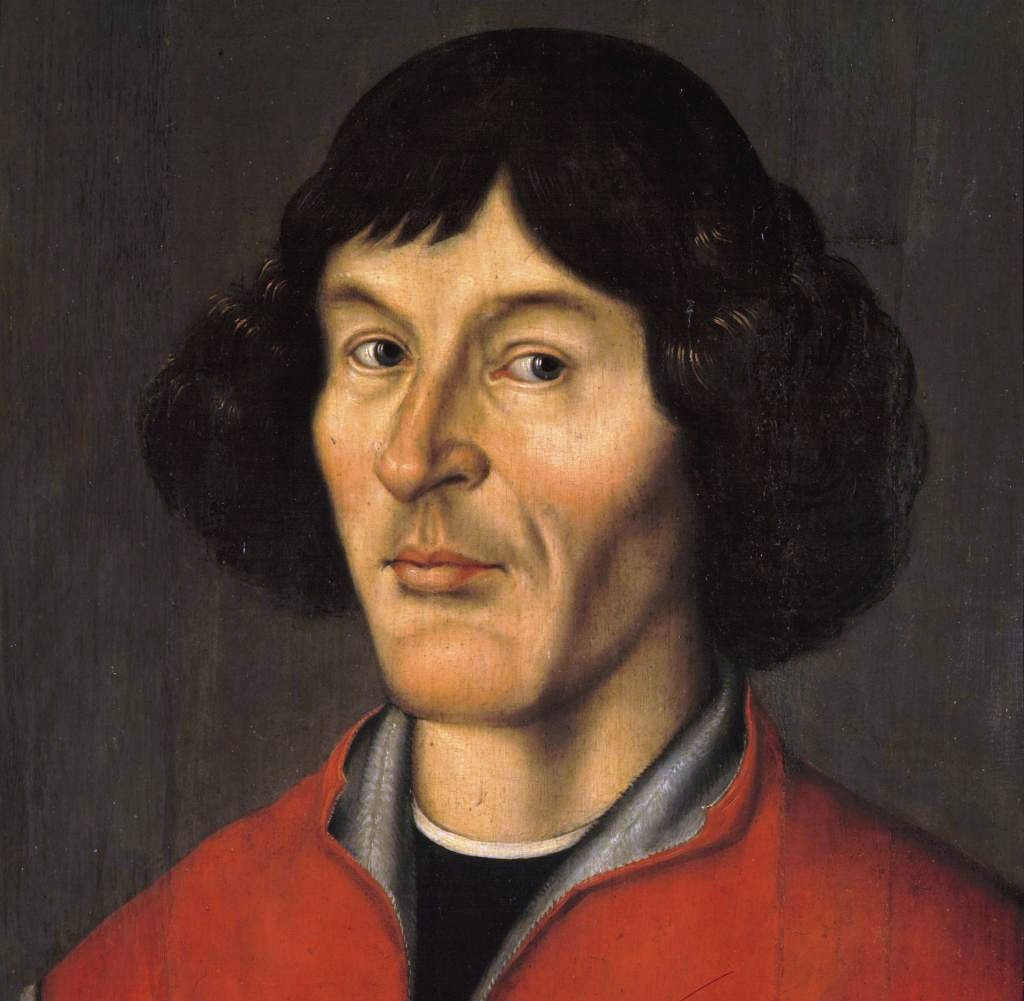

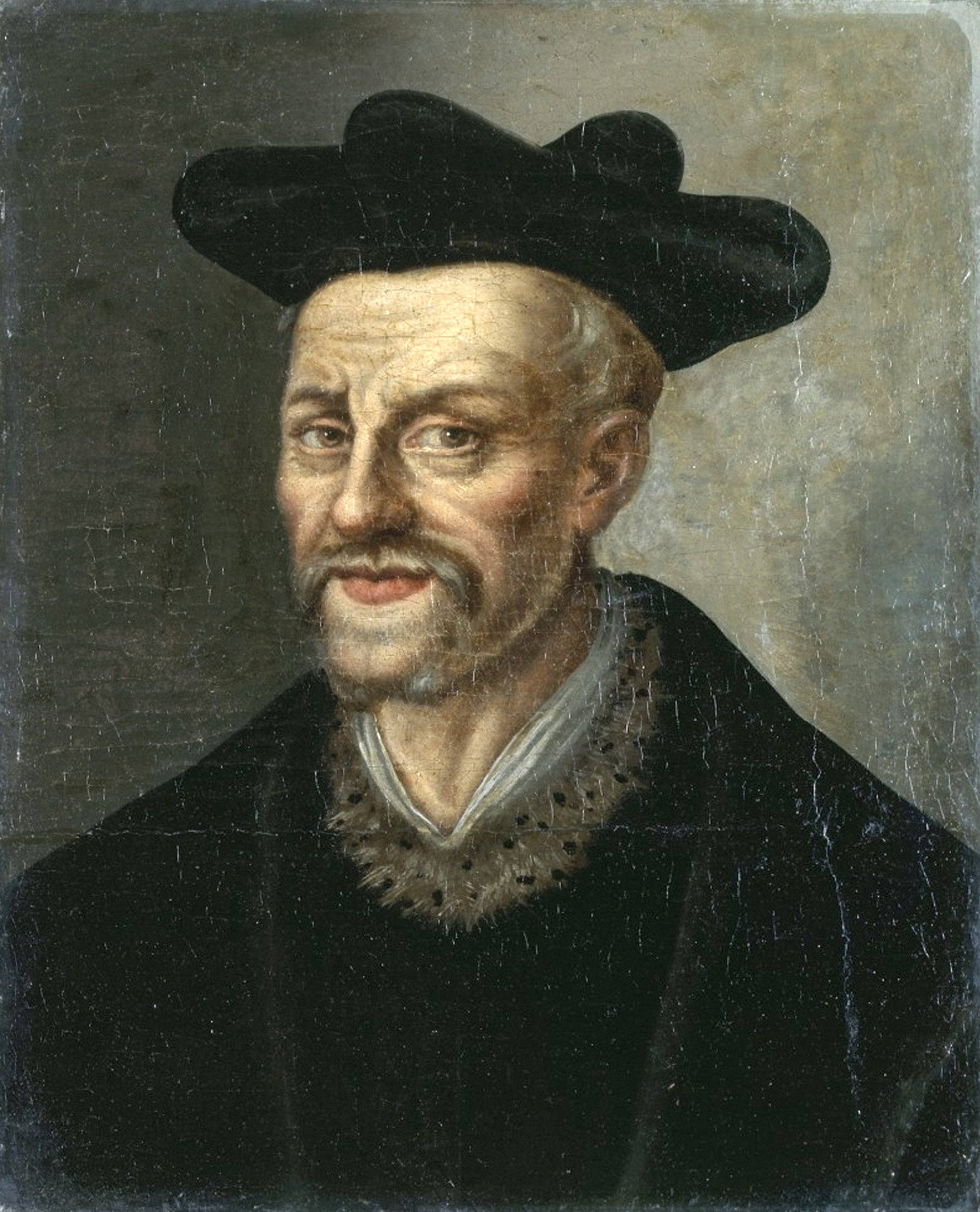 * Adam of Łowicz (also known as Adamus Polonus; died 1514) was a professor of medicine at
* Adam of Łowicz (also known as Adamus Polonus; died 1514) was a professor of medicine at



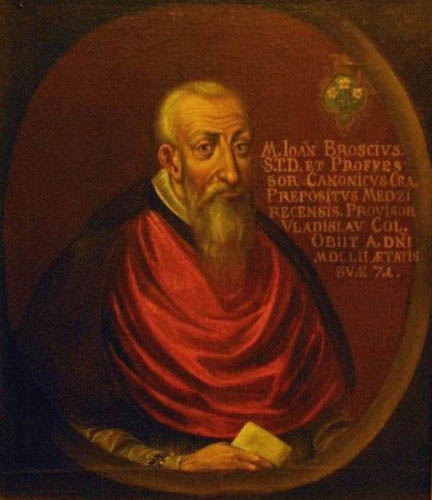 *
*

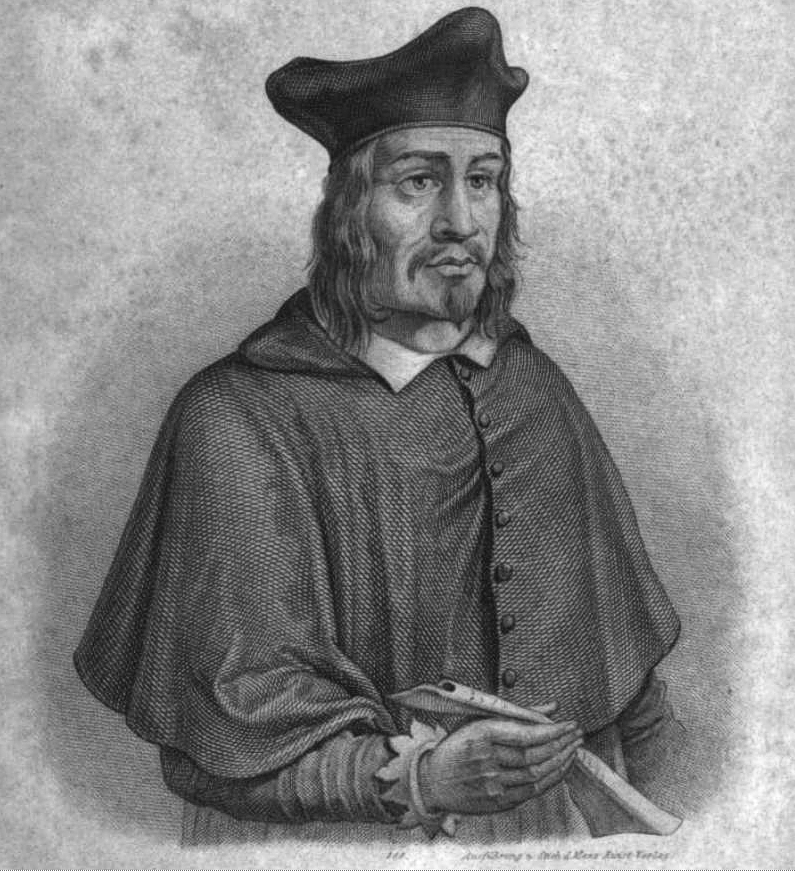 * Patrick Abercromby (1656 – c. 1716) Scottish
* Patrick Abercromby (1656 – c. 1716) Scottish

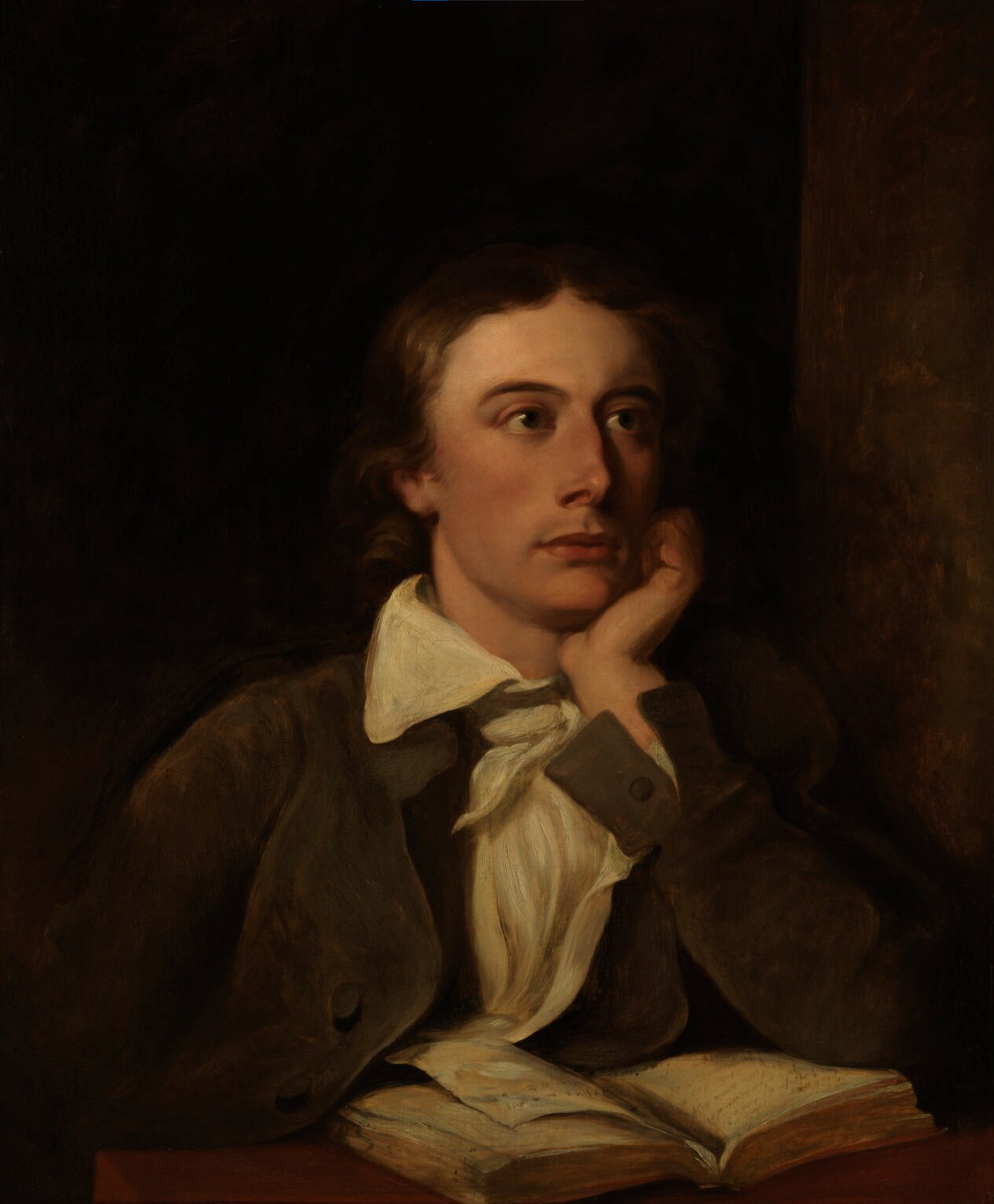

 *
*
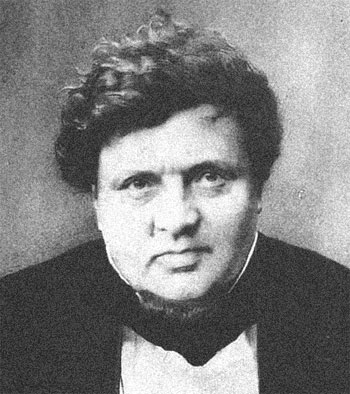
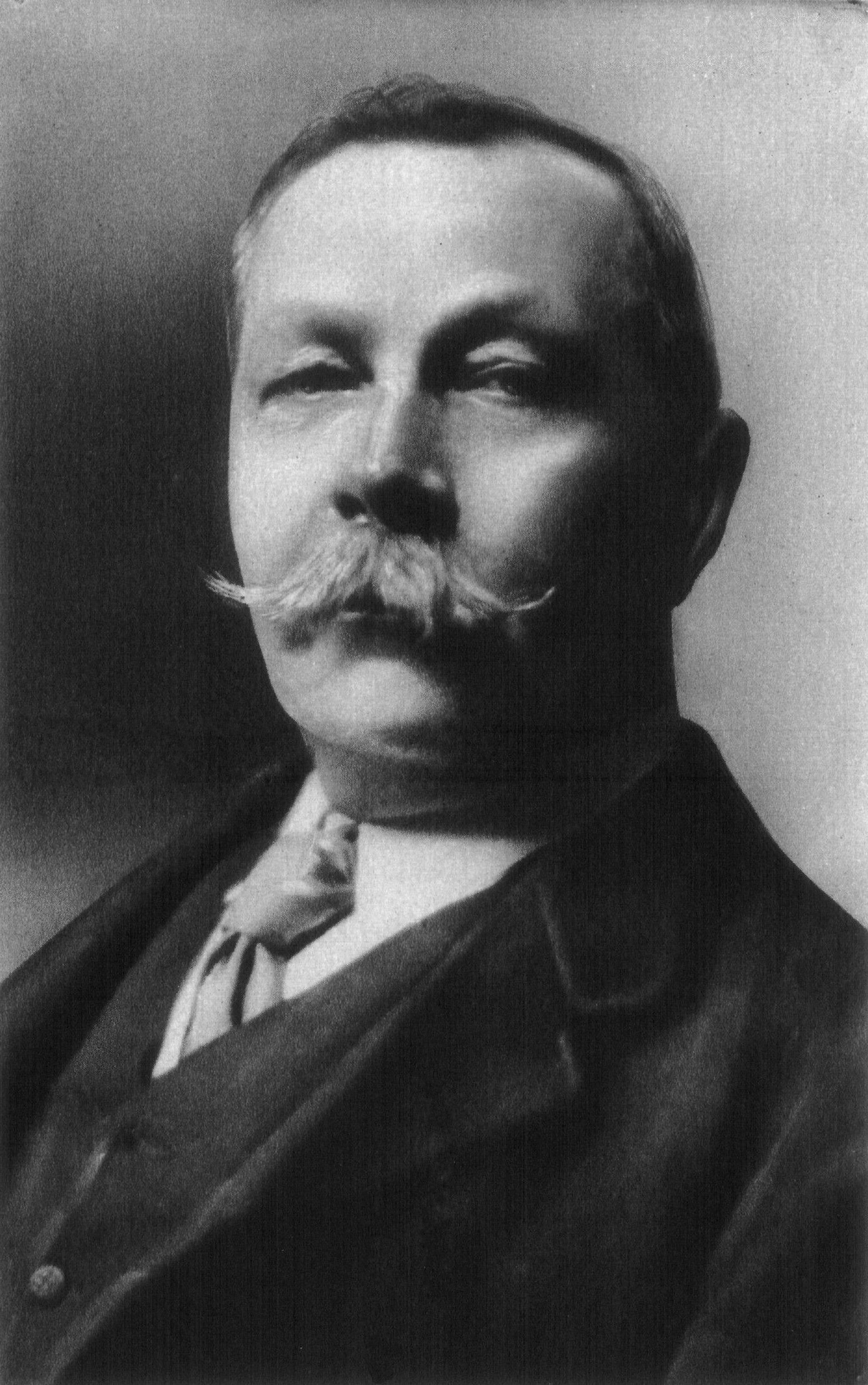






 * Carl Ludwig Emil Aarestrup (1800–1856) Danish
* Carl Ludwig Emil Aarestrup (1800–1856) Danish


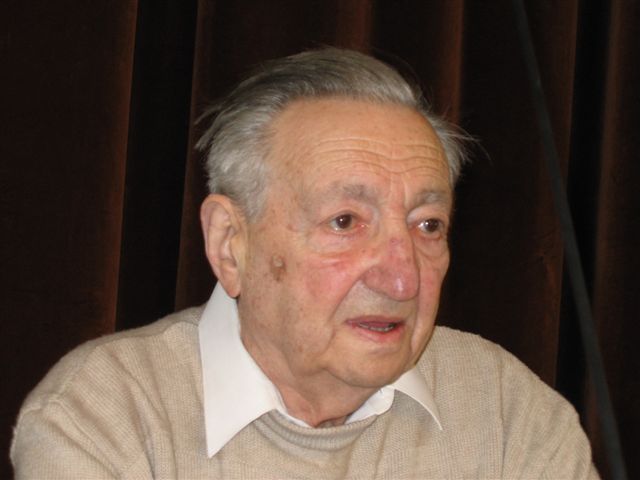
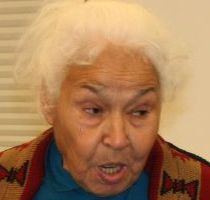

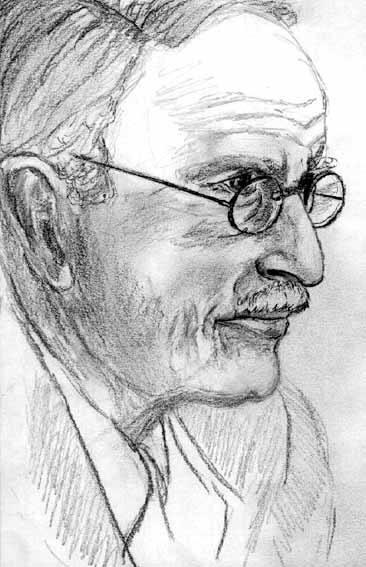

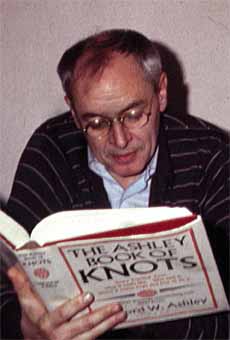
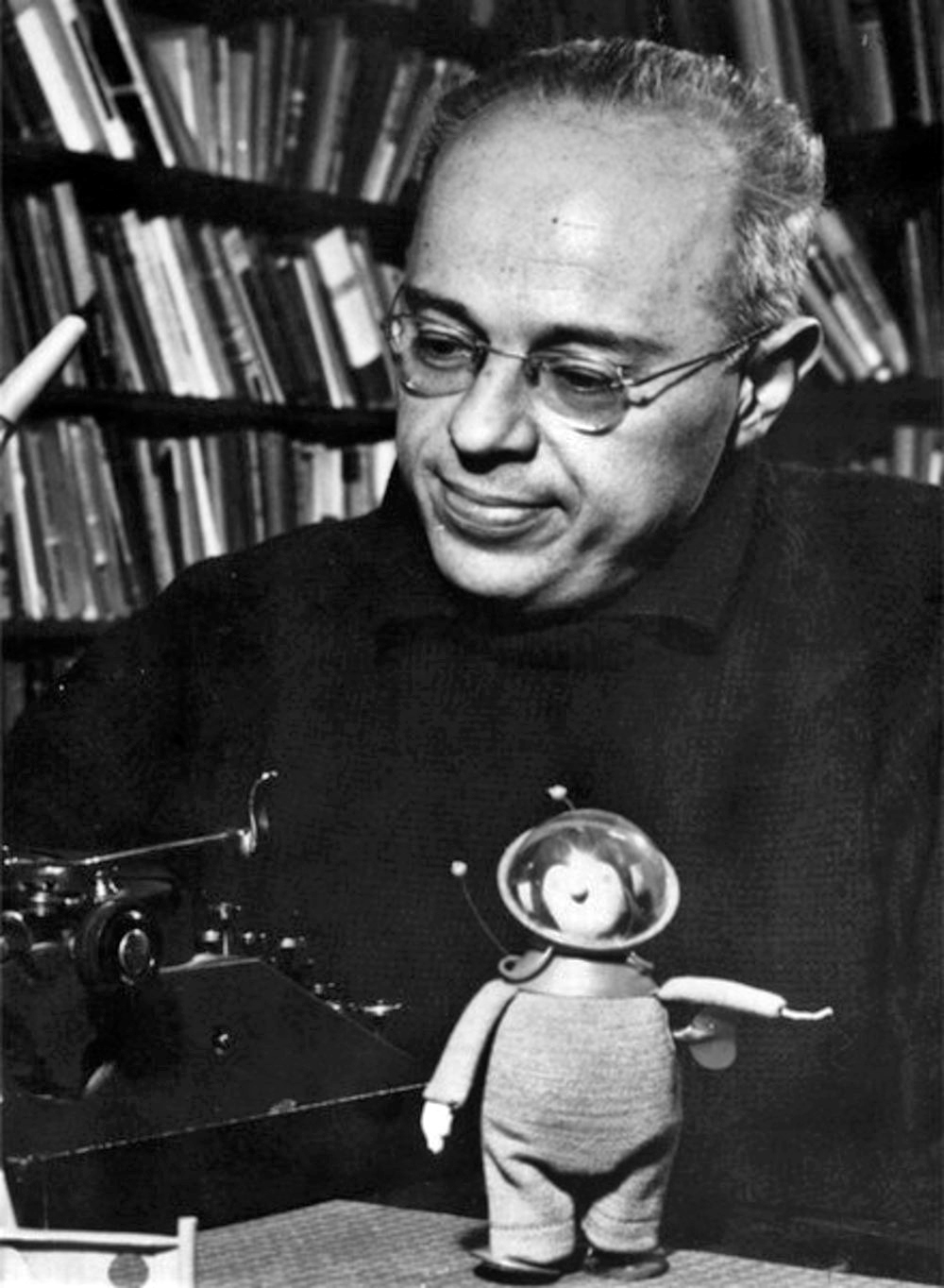

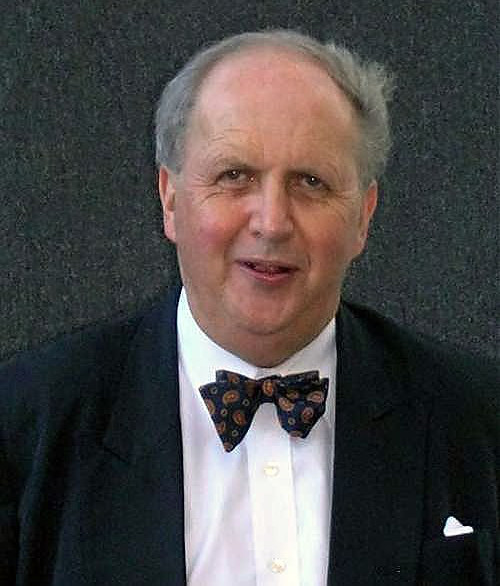

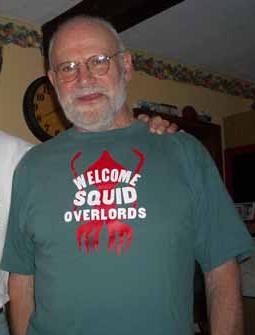






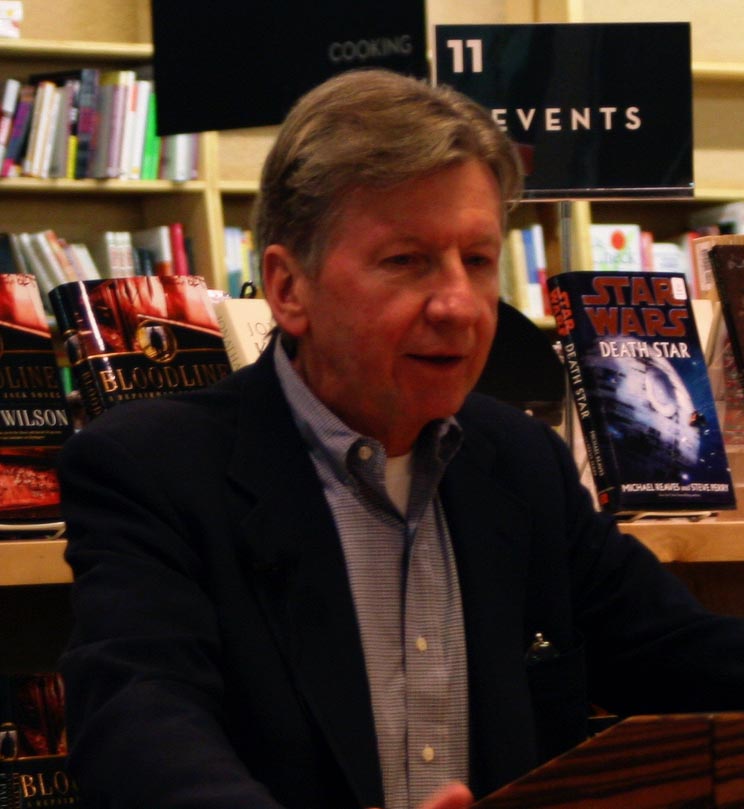 *Kōbō Abe (1924–1993) Japanese author known for his surrealistic, Kafkaesque style
*Keith Ablow, New York Times best-selling author
*Dannie Abse (1923–2014) Welsh chest specialist who is also one of Europe's most prolific doctor-poets
*Vassily Aksyonov (1932–2009) Russian novelist who was forced to emigrate from the Soviet Union in 1980
*António Lobo Antunes (born 1942) psychiatrist and leading Portuguese writer
*Jacob M. Appel (born 1973), American short story writer
*Daniel Amen, psychiatrist, New York Times author
*Janet Asimov (1926–2019, Janet Opal Jeppson) American science fiction author and psychoanalyst, wife of Isaac Asimov
*Brian Andrews (doctor), Brian Andrews (born 1955), neurosurgeon, Novelist
*Alaa Al Aswany (born 1957), Egyptian writer and practicing dentist
*Ba'al Machshavot: see Israel Isidor Elyashev
*Arnie Baker (born 1953 in Montreal, Canada) is a bicycle coach, racer and writer
*Christiaan Neethling Barnard (1922–2001) South African cardiac surgeon, famous for performing the world's first successful human-to-human heart transplant
*Martin Bax (born 1933) British founder and editor of the literary journal ''Ambit (magazine), Ambit'' (1959); a developmental pediatrician and editor of the journal, ''Developmental and Child Neurology''. He is also author of the cult novel, ''The Hospital Ship''.
*Eric Berne (1910–70), psychiatrist who created transactional analysis; author of ''Games People Play (book), Games People Play''.
*Tadeusz Boy-Żeleński (1874–1941) Polish gynecologist, journalist, poet, most famous as the translation, translator of over 100 French literary classics into Polish language, Polish.
*Rafael Campo (poet), Rafael Campo (born 1964) director of the ''Harvard Program in the Medical Humanities''; his practice serves mostly Latinos, gay/lesbian/bisexual/transgender people, and people with HIV infection, HIV
*Ethan Canin (born 1960) American short story writer and novelist; author of ''Emperor of the Air'', ''Carry Me Across the Water'', and other works
*
*Kōbō Abe (1924–1993) Japanese author known for his surrealistic, Kafkaesque style
*Keith Ablow, New York Times best-selling author
*Dannie Abse (1923–2014) Welsh chest specialist who is also one of Europe's most prolific doctor-poets
*Vassily Aksyonov (1932–2009) Russian novelist who was forced to emigrate from the Soviet Union in 1980
*António Lobo Antunes (born 1942) psychiatrist and leading Portuguese writer
*Jacob M. Appel (born 1973), American short story writer
*Daniel Amen, psychiatrist, New York Times author
*Janet Asimov (1926–2019, Janet Opal Jeppson) American science fiction author and psychoanalyst, wife of Isaac Asimov
*Brian Andrews (doctor), Brian Andrews (born 1955), neurosurgeon, Novelist
*Alaa Al Aswany (born 1957), Egyptian writer and practicing dentist
*Ba'al Machshavot: see Israel Isidor Elyashev
*Arnie Baker (born 1953 in Montreal, Canada) is a bicycle coach, racer and writer
*Christiaan Neethling Barnard (1922–2001) South African cardiac surgeon, famous for performing the world's first successful human-to-human heart transplant
*Martin Bax (born 1933) British founder and editor of the literary journal ''Ambit (magazine), Ambit'' (1959); a developmental pediatrician and editor of the journal, ''Developmental and Child Neurology''. He is also author of the cult novel, ''The Hospital Ship''.
*Eric Berne (1910–70), psychiatrist who created transactional analysis; author of ''Games People Play (book), Games People Play''.
*Tadeusz Boy-Żeleński (1874–1941) Polish gynecologist, journalist, poet, most famous as the translation, translator of over 100 French literary classics into Polish language, Polish.
*Rafael Campo (poet), Rafael Campo (born 1964) director of the ''Harvard Program in the Medical Humanities''; his practice serves mostly Latinos, gay/lesbian/bisexual/transgender people, and people with HIV infection, HIV
*Ethan Canin (born 1960) American short story writer and novelist; author of ''Emperor of the Air'', ''Carry Me Across the Water'', and other works
*


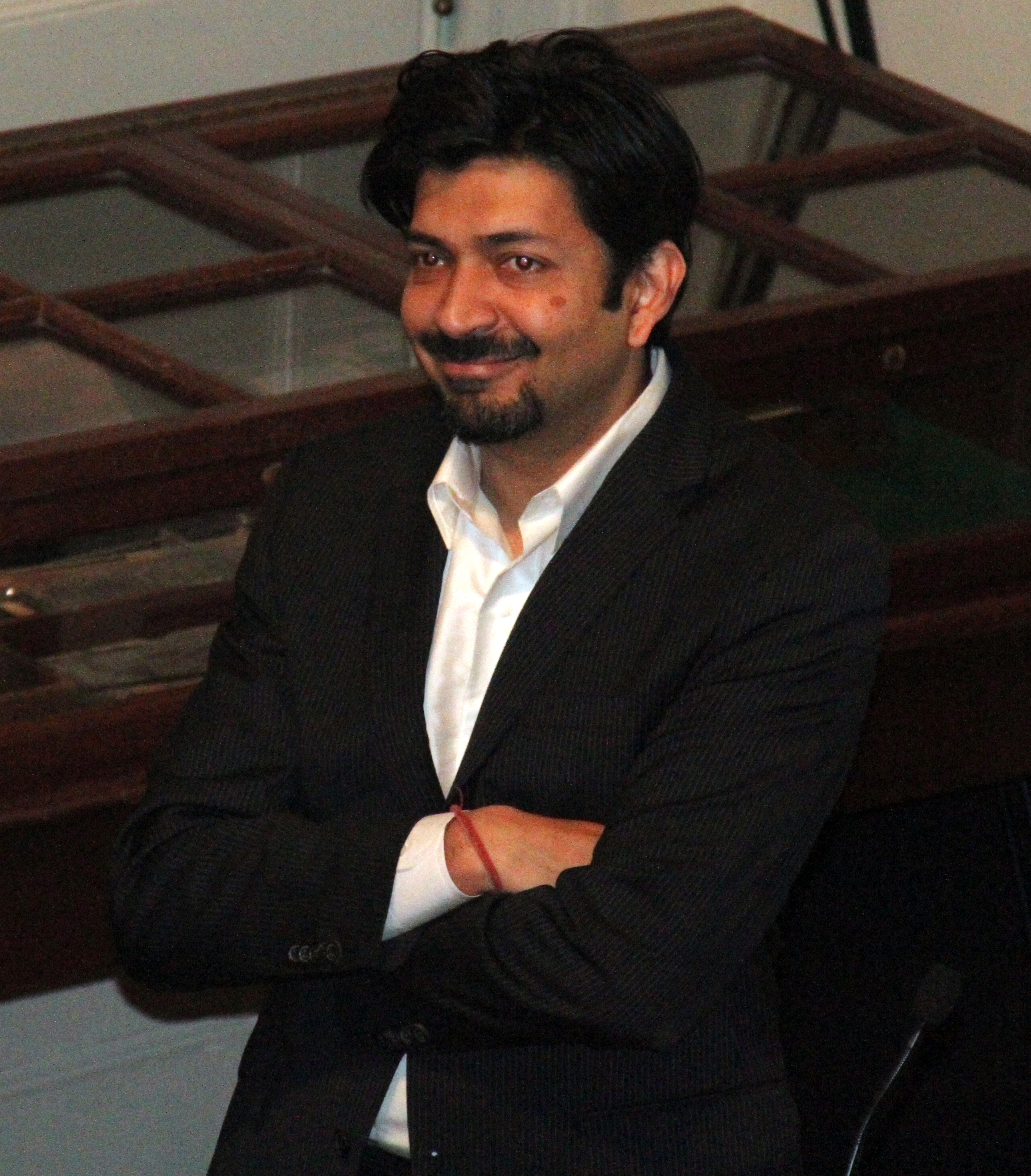 *Chris Adrian, author, paediatrician, Harvard Divinity School graduate
*Monther Alkabbani (born 1970), celebrated Saudi Arabian writer, novelist and surgeon
*Janet Asimov, psychiatrist, psychoanalyst, and science fiction writer
*Gyan Chaturvedi (born 1952), Indian cardiologist, author, and columnist. He is a prolific writer of much-acclaimed satire in Hindi.
*Daria Chubata, Ukrainian physician, author, poet, social activist
*Brandon Colby, writer on predictive medicine and genetic testing
*John Collee, Scottish physician, novelist and screenwriter (Master and Commander, Happy Feet)
*Ion Degen, Soviet and Israeli writer, doctor and medical scientist in the field of orthopedics and traumatology
*Joel Fuhrman, family physician, author, print and TV advocate of a micronutrient-rich diet
*Rivka Galchen, novelist
*Atul Gawande (born 1965), general and endocrine surgeon at Brigham and Women's Hospital in Boston, Massachusetts, and ''The New Yorker'' medical writer
*Tess Gerritsen, novelist
*Paul Kalanithi, neurosurgeon and author of ''When Breath Becomes Air''
*Perri Klass, journalist, pediatrician, New York University professor
*Vincent Lam, Canadian writer (''Bloodletting & Miraculous Cures'')
*Asael Lubotzky, Israeli pediatrician, writer, and scientist
*C. J. Lyons, former pediatrician and thriller writer
*Amit Majmudar, poet, novelist, practicing radiologist, 1st Ohio poet laureate
*Howard Markel, physician, medical historian, journalist, editor, national best selling author, and professor at The University of Michigan
*Siddhartha Mukherjee, oncologist, Pulitzer Prize winner, author of ''The Emperor of All Maladies: A Biography of Cancer''
*Taslima Nasrin, Bengali author and former physician
*Danielle Ofri, internist at Bellevue Hospital and professor of medicine at New York University School of Medicine. Editor of Bellevue Literary Review. Author of ''What Doctors Feel;'' ''Incidental Findings;'' ''Medicine in Translation;'' ''What Patients Say, What Doctors Hear;'' ''When We Do Harm,'' ''and'' ''Singular Intimacies: Becoming a Doctor at Bellevue''.
*Chris Adrian, author, paediatrician, Harvard Divinity School graduate
*Monther Alkabbani (born 1970), celebrated Saudi Arabian writer, novelist and surgeon
*Janet Asimov, psychiatrist, psychoanalyst, and science fiction writer
*Gyan Chaturvedi (born 1952), Indian cardiologist, author, and columnist. He is a prolific writer of much-acclaimed satire in Hindi.
*Daria Chubata, Ukrainian physician, author, poet, social activist
*Brandon Colby, writer on predictive medicine and genetic testing
*John Collee, Scottish physician, novelist and screenwriter (Master and Commander, Happy Feet)
*Ion Degen, Soviet and Israeli writer, doctor and medical scientist in the field of orthopedics and traumatology
*Joel Fuhrman, family physician, author, print and TV advocate of a micronutrient-rich diet
*Rivka Galchen, novelist
*Atul Gawande (born 1965), general and endocrine surgeon at Brigham and Women's Hospital in Boston, Massachusetts, and ''The New Yorker'' medical writer
*Tess Gerritsen, novelist
*Paul Kalanithi, neurosurgeon and author of ''When Breath Becomes Air''
*Perri Klass, journalist, pediatrician, New York University professor
*Vincent Lam, Canadian writer (''Bloodletting & Miraculous Cures'')
*Asael Lubotzky, Israeli pediatrician, writer, and scientist
*C. J. Lyons, former pediatrician and thriller writer
*Amit Majmudar, poet, novelist, practicing radiologist, 1st Ohio poet laureate
*Howard Markel, physician, medical historian, journalist, editor, national best selling author, and professor at The University of Michigan
*Siddhartha Mukherjee, oncologist, Pulitzer Prize winner, author of ''The Emperor of All Maladies: A Biography of Cancer''
*Taslima Nasrin, Bengali author and former physician
*Danielle Ofri, internist at Bellevue Hospital and professor of medicine at New York University School of Medicine. Editor of Bellevue Literary Review. Author of ''What Doctors Feel;'' ''Incidental Findings;'' ''Medicine in Translation;'' ''What Patients Say, What Doctors Hear;'' ''When We Do Harm,'' ''and'' ''Singular Intimacies: Becoming a Doctor at Bellevue''.  *Kevin Patterson (writer), Kevin Patterson, Canadian writer
*Nawal El Saadawi, Egyptian feminist writer, activist, physician and psychiatrist
*Abraham Verghese, Indian-American New York Times Bestselling author, Professor at Stanford University Medical School, Department of Internal Medicine
*Kyrie Wang, historical fantasy author, practicing pathologist, artist, Assistant Professor at
*Kevin Patterson (writer), Kevin Patterson, Canadian writer
*Nawal El Saadawi, Egyptian feminist writer, activist, physician and psychiatrist
*Abraham Verghese, Indian-American New York Times Bestselling author, Professor at Stanford University Medical School, Department of Internal Medicine
*Kyrie Wang, historical fantasy author, practicing pathologist, artist, Assistant Professor at
epoch
In chronology and periodization, an epoch or reference epoch is an instant in time chosen as the origin of a particular calendar era. The "epoch" serves as a reference point from which time is measured.
The moment of epoch is usually decided ...
or century in which the author was born, arranged in alphabetical order.
Antiquity
 *
*Ctesias
Ctesias (; grc-gre, Κτησίας; fl. fifth century BC), also known as Ctesias of Cnidus, was a Greek physician and historian from the town of Cnidus in Caria, then part of the Achaemenid Empire.
Historical events
Ctesias, who lived in the fi ...
(5th century BCE) Greek historian
*St. Luke
Luke the Evangelist (Latin: '' Lucas''; grc, Λουκᾶς, '' Loukâs''; he, לוקאס, ''Lūqās''; arc, /ܠܘܩܐ לוקא, ''Lūqā’; Ge'ez: ሉቃስ'') is one of the Four Evangelists—the four traditionally ascribed authors of t ...
(1st century CE) apostle
An apostle (), in its literal sense, is an emissary, from Ancient Greek ἀπόστολος (''apóstolos''), literally "one who is sent off", from the verb ἀποστέλλειν (''apostéllein''), "to send off". The purpose of such sending ...
Middle Ages
*Avicenna
Ibn Sina ( fa, ابن سینا; 980 – June 1037 CE), commonly known in the West as Avicenna (), was a Persian polymath who is regarded as one of the most significant physicians, astronomers, philosophers, and writers of the Islamic ...
(980–1037) early contributor to medical, philosophical and Islamic
Islam (; ar, ۘالِإسلَام, , ) is an Abrahamic monotheistic religion centred primarily around the Quran, a religious text considered by Muslims to be the direct word of God (or '' Allah'') as it was revealed to Muhammad, the ma ...
literature
* Yehuda Halevi (c. 1075 – 1141) Jewish
Jews ( he, יְהוּדִים, , ) or Jewish people are an ethnoreligious group and nation originating from the Israelites Israelite origins and kingdom: "The first act in the long drama of Jewish history is the age of the Israelites""The ...
-Spanish philosopher and poet
*Maimonides
Musa ibn Maimon (1138–1204), commonly known as Maimonides (); la, Moses Maimonides and also referred to by the acronym Rambam ( he, רמב״ם), was a Sephardic Jewish philosopher who became one of the most prolific and influential Torah ...
(1138–1204) rabbi
A rabbi () is a spiritual leader or religious teacher in Judaism. One becomes a rabbi by being ordained by another rabbi – known as '' semikha'' – following a course of study of Jewish history and texts such as the Talmud. The basic form o ...
, and philosopher in Andalusia
Andalusia (, ; es, Andalucía ) is the southernmost autonomous community in Peninsular Spain. It is the most populous and the second-largest autonomous community in the country. It is officially recognised as a "historical nationality". The ...
, Morocco
Morocco (),, ) officially the Kingdom of Morocco, is the westernmost country in the Maghreb region of North Africa. It overlooks the Mediterranean Sea to the north and the Atlantic Ocean to the west, and has land borders with Algeria to A ...
and Egypt
Egypt ( ar, مصر , ), officially the Arab Republic of Egypt, is a List of transcontinental countries, transcontinental country spanning the North Africa, northeast corner of Africa and Western Asia, southwest corner of Asia via a land bridg ...
15th century


 * Adam of Łowicz (also known as Adamus Polonus; died 1514) was a professor of medicine at
* Adam of Łowicz (also known as Adamus Polonus; died 1514) was a professor of medicine at Poland
Poland, officially the Republic of Poland, is a country in Central Europe. It is divided into 16 administrative provinces called voivodeships, covering an area of . Poland has a population of over 38 million and is the fifth-most populou ...
's Kraków Academy, its rector in 1510–11, royal court physician, a humanist
Humanism is a philosophical stance that emphasizes the individual and social potential and agency of human beings. It considers human beings the starting point for serious moral and philosophical inquiry.
The meaning of the term "human ...
, writer and philosopher.
*Marsilio Ficino
Marsilio Ficino (; Latin name: ; 19 October 1433 – 1 October 1499) was an Italian scholar and Catholic priest who was one of the most influential humanist philosophers of the early Italian Renaissance. He was an astrologer, a revive ...
(1433-1499) was an Italian Platonist philosopher, physician, and writer. A patronee of Cosimo de' Medici
Cosimo di Giovanni de' Medici (27 September 1389 – 1 August 1464) was an Italian banker and politician who established the Medici family as effective rulers of Florence during much of the Italian Renaissance. His power derived from his wealth ...
, Ficino was a key cultural figure in the Florentine Renaissance.
* Biernat of Lublin (1465–1529) was a Polish poet, fabulist and physician. He was one of the first Polish-language writers known by name, and the most interesting of the earliest ones.
*Nicolaus Copernicus
Nicolaus Copernicus (; pl, Mikołaj Kopernik; gml, Niklas Koppernigk, german: Nikolaus Kopernikus; 19 February 1473 – 24 May 1543) was a Renaissance polymath, active as a mathematician, astronomer, and Catholic canon, who formulat ...
(1473–1543) was a Polish mathematician, astronomer, physician, classical scholar, translator, Catholic cleric, jurist, governor, military leader, diplomat and economist, best known for his epoch-making book, ''De revolutionibus orbium coelestium
''De revolutionibus orbium coelestium'' (English translation: ''On the Revolutions of the Heavenly Spheres'') is the seminal work on the heliocentric theory of the astronomer Nicolaus Copernicus (1473–1543) of the Polish Renaissance. The book, ...
''.
* Girolamo Fracastoro (Fracastorius; 1478–1553) Italian scholar
A scholar is a person who pursues academic and intellectual activities, particularly academics who apply their intellectualism into expertise in an area of study. A scholar can also be an academic, who works as a professor, teacher, or researche ...
(in mathematics, geography and astronomy), poet and atomist; as a physician, he proposed ideas very similar to the germ theory of disease
The germ theory of disease is the currently accepted scientific theory for many diseases. It states that microorganisms known as pathogens or "germs" can lead to disease. These small organisms, too small to be seen without magnification, invade ...
.
*Paracelsus
Paracelsus (; ; 1493 – 24 September 1541), born Theophrastus von Hohenheim (full name Philippus Aureolus Theophrastus Bombastus von Hohenheim), was a Swiss physician, alchemist, lay theologian, and philosopher of the German Renaissance.
He ...
(1493–1541) Swiss-born botanist
Botany, also called , plant biology or phytology, is the science of plant life and a branch of biology. A botanist, plant scientist or phytologist is a scientist who specialises in this field. The term "botany" comes from the Ancient Greek wo ...
, alchemist
Alchemy (from Arabic: ''al-kīmiyā''; from Ancient Greek: χυμεία, ''khumeía'') is an ancient branch of natural philosophy, a philosophical and protoscientific tradition that was historically practiced in China, India, the Muslim ...
, occultist
The occult, in the broadest sense, is a category of esoteric supernatural beliefs and practices which generally fall outside the scope of religion and science, encompassing phenomena involving otherworldly agency, such as magic and mysticism a ...
.
*François Rabelais
François Rabelais ( , , ; born between 1483 and 1494; died 1553) was a French Renaissance writer, physician, Renaissance humanist, monk and Greek scholar. He is primarily known as a writer of satire, of the grotesque, and of bawdy jokes ...
(1483–1553) French satirist
This is an incomplete list of writers, cartoonists and others known for involvement in satire – humorous social criticism. They are grouped by era and listed by year of birth. Included is a list of modern satires.
Under Contemporary, 1930-196 ...
and author of ''The Lives, Heroic Deeds and Sayings of Gargantua and Pantagruel
''The Life of Gargantua and of Pantagruel'' (french: La vie de Gargantua et de Pantagruel) is a pentalogy of novels written in the 16th century by François Rabelais, telling the adventures of two giants, Gargantua ( , ) and his son Pantagruel ...
''.
16th century



 *
*Luis Barahona de Soto
Luis Barahona de Soto (1548 – 5 November 1595) was a Spanish poet.
Born at Lucena (Cordoba), he was educated at Granada, and practised as a physician at Archidona (Málaga). His major work is the ''Primera parte de la Angélica'' (1586), a ...
(1548–1595), Spanish poet admired by his contemporary, Miguel de Cervantes
Miguel de Cervantes Saavedra (; 29 September 1547 (assumed) – 22 April 1616 NS) was an Early Modern Spanish writer widely regarded as the greatest writer in the Spanish language and one of the world's pre-eminent novelists. He is best kno ...
(1547–1616)
*Jan Brożek
Jan Brożek (''Ioannes Broscius'', ''Joannes Broscius'' or ''Johannes Broscius''; 1 November 1585 – 21 November 1652) was a Polish polymath: a mathematician, astronomer, physician, poet, writer, musician and rector of the Kraków Academy.
Lif ...
(''Broscius'', 1585–1652), Polish mathematician, astronomer
An astronomer is a scientist in the field of astronomy who focuses their studies on a specific question or field outside the scope of Earth. They observe astronomical objects such as stars, planets, moons, comets and galaxies – in either ...
, physician, poet, writer, musician, rector of the Kraków Academy
*Thomas Campion
Thomas Campion (sometimes spelled Campian; 12 February 1567 – 1 March 1620) was an English composer, poet, and physician. He was born in London, educated at Cambridge, studied law in Gray's inn. He wrote over a hundred lute songs, masques ...
(1567–1620) English composer and poet
* William Gilbert (1544–1603) English natural philosopher
*Jacques Grévin
Jacques Grévin (''c''. 1539 – 5 November 1570) was a French playwright.
Grévin was born at Clermont, Oise in about 1539, and he studied medicine at the University of Paris. He became a disciple of Pierre de Ronsard, Ronsard, and was one of t ...
(c. 1539 – 1570) French dramatist
* Arthur Johnston (1587–1641) Scottish poet
* Thomas Lodge (c. 1558 – 1625) English dramatist and writer of the Elizabethan
The Elizabethan era is the epoch in the Tudor period of the history of England during the reign of Queen Elizabeth I (1558–1603). Historians often depict it as the golden age in English history. The symbol of Britannia (a female personific ...
and Jacobean periods; best remembered as the author of ''Rosalynde'', on which Shakespeare
William Shakespeare ( 26 April 1564 – 23 April 1616) was an English playwright, poet and actor. He is widely regarded as the greatest writer in the English language and the world's pre-eminent dramatist. He is often called England's nation ...
based As You Like It
''As You Like It'' is a pastoral comedy by William Shakespeare believed to have been written in 1599 and first published in the First Folio in 1623. The play's first performance is uncertain, though a performance at Wilton House in 1603 h ...
* Sebastian Petrycy of Pilzno (1554–1626) was a Polish philosopher and physician.
*Michael Servetus
Michael Servetus (; es, Miguel Serveto as real name; french: Michel Servet; also known as ''Miguel Servet'', ''Miguel de Villanueva'', ''Revés'', or ''Michel de Villeneuve''; 29 September 1509 or 1511 – 27 October 1553) was a Spanish th ...
(1511–53), Spanish theologian, cartographer
Cartography (; from grc, χάρτης , "papyrus, sheet of paper, map"; and , "write") is the study and practice of making and using maps. Combining science, aesthetics and technique, cartography builds on the premise that reality (or an ...
, humanist
Humanism is a philosophical stance that emphasizes the individual and social potential and agency of human beings. It considers human beings the starting point for serious moral and philosophical inquiry.
The meaning of the term "human ...
; the first European to describe pulmonary circulation
The pulmonary circulation is a division of the circulatory system in all vertebrates. The circuit begins with deoxygenated blood returned from the body to the right atrium of the heart where it is pumped out from the right ventricle to the lungs ...
; burned at the stake, for his religious views, in John Calvin
John Calvin (; frm, Jehan Cauvin; french: link=no, Jean Calvin ; 10 July 150927 May 1564) was a French theologian, pastor and reformer in Geneva during the Protestant Reformation. He was a principal figure in the development of the system ...
's Geneva
Geneva ( ; french: Genève ) frp, Genèva ; german: link=no, Genf ; it, Ginevra ; rm, Genevra is the second-most populous city in Switzerland (after Zürich) and the most populous city of Romandy, the French-speaking part of Switzerland. Situa ...
.
*Andreas Vesalius
Andreas Vesalius (Latinized from Andries van Wezel) () was a 16th-century anatomist, physician, and author of one of the most influential books on human anatomy, ''De Humani Corporis Fabrica Libri Septem'' (''On the fabric of the human body'' ' ...
(1514–64) Belgian anatomist
Anatomy () is the branch of biology concerned with the study of the structure of organisms and their parts. Anatomy is a branch of natural science that deals with the structural organization of living things. It is an old science, having it ...
, author of ''De humani corporis fabrica
''De Humani Corporis Fabrica Libri Septem'' (Latin, lit. "On the fabric of the human body in seven books") is a set of books on human anatomy written by Andreas Vesalius (1514–1564) and published in 1543. It was a major advance in the history ...
''
17th century

 * Patrick Abercromby (1656 – c. 1716) Scottish
* Patrick Abercromby (1656 – c. 1716) Scottish antiquarian
An antiquarian or antiquary () is an fan (person), aficionado or student of antiquities or things of the past. More specifically, the term is used for those who study history with particular attention to ancient artifact (archaeology), artifac ...
, noted for being physician to King James VII
James VII and II (14 October 1633 16 September 1701) was King of England and King of Ireland as James II, and King of Scotland as James VII from the death of his elder brother, Charles II, on 6 February 1685. He was deposed in the Glorious Re ...
(II of England)
*John Arbuthnot
John Arbuthnot FRS (''baptised'' 29 April 1667 – 27 February 1735), often known simply as Dr Arbuthnot, was a Scottish physician, satirist and polymath in London. He is best remembered for his contributions to mathematics, his members ...
(1667–1735) one of Queen Anne's physicians and an associate of Jonathan Swift
Jonathan Swift (30 November 1667 – 19 October 1745) was an Anglo-Irish satirist, author, essayist, political pamphleteer (first for the Whigs, then for the Tories), poet, and Anglican cleric who became Dean of St Patrick's Cathedral, Du ...
and Alexander Pope
Alexander Pope (21 May 1688 O.S. – 30 May 1744) was an English poet, translator, and satirist of the Enlightenment era who is considered one of the most prominent English poets of the early 18th century. An exponent of Augustan literature, ...
in the Scriblerus Club
The Scriblerus Club was an informal association of authors, based in London, that came together in the early 18th century. They were prominent figures in the Augustan Age of English letters. The nucleus of the club included the satirists Jonathan ...
*Sir Thomas Browne
Sir Thomas Browne (; 19 October 1605 – 19 October 1682) was an English polymath and author of varied works which reveal his wide learning in diverse fields including science and medicine, religion and the esoteric. His writings display a ...
(1605–1682) British writer with mastery in diverse fields including medicine, religion, science and the esoteric.
*Samuel Garth
Sir Samuel Garth FRS (1661 – 18 January 1719) was an English physician and poet.
Life
Garth was born in Bolam in County Durham and matriculated at Peterhouse, Cambridge in 1676, graduating B.A. in 1679 and M.A. in 1684. He took his M.D. an ...
(1661–1719) British author and translator of classics
Classics or classical studies is the study of classical antiquity. In the Western world, classics traditionally refers to the study of Classical Greek and Roman literature and their related original languages, Ancient Greek and Latin. Classics ...
* Paul Fleming (1609–1640) was a lyricist he stood in the front rank of German poets
*Giulio Mancini
Giulio Mancini (21 February 1559 – 22 August 1630) was a seicento physician, art collector, art dealer and writer on a range of subjects. His writings on contemporary artists like Caravaggio and Annibale Carracci remain one of our earliest sourc ...
(1559–1630) papal physician, art collector, and author of treatises on painting, nobility, dancing, government, and health
*Bernard Mandeville
Bernard Mandeville, or Bernard de Mandeville (; 15 November 1670 – 21 January 1733), was an Anglo-Dutch philosopher, political economist and satirist. Born in Rotterdam, Netherlands, he lived most of his life in England and used English for ...
(1670–1733) Dutch philosopher, political economist and satirist
This is an incomplete list of writers, cartoonists and others known for involvement in satire – humorous social criticism. They are grouped by era and listed by year of birth. Included is a list of modern satires.
Under Contemporary, 1930-196 ...
who lived most of his life in England and used English for most of his published works; became famous (or infamous) for ''The Fable of the Bees
''The Fable of The Bees: or, Private Vices, Publick Benefits'' (1714) is a book by the Anglo-Dutch social philosopher Bernard Mandeville. It consists of the satirical poem ''The Grumbling Hive: or, Knaves turn'd Honest'', which was first publis ...
''
*Francesco Redi
Francesco Redi (18 February 1626 – 1 March 1697) was an Italian physician, naturalist, biologist, and poet. He is referred to as the "founder of experimental biology", and as the "father of modern parasitology". He was the first person to ch ...
(1626–97) Italian poet, best known work being ''Bacchus in Tuscany''
*Angelus Silesius
Angelus Silesius (9 July 1677), born Johann Scheffler and also known as Johann Angelus Silesius, was a German Catholic priest and physician, known as a mystic and religious poet. Born and raised a Lutheran, he adopted the name ''Angelus'' (Lati ...
, né Johannes Scheffler (1624–77) German mystic and poet who wrote the lyrics to many Christian hymns
A hymn is a type of song, and partially synonymous with devotional song, specifically written for the purpose of adoration or prayer, and typically addressed to a deity or deities, or to a prominent figure or personification. The word ''hymn'' ...
*Henry Vaughan
Henry Vaughan (17 April 1621 – 23 April 1695) was a Welsh metaphysical poet, author and translator writing in English, and a medical physician. His religious poetry appeared in ''Silex Scintillans'' in 1650, with a second part in 1655.''Oxfo ...
(1622–1695) Welsh metaphysical
Metaphysics is the branch of philosophy that studies the fundamental nature of reality, the first principles of being, identity and change, space and time, causality, necessity, and possibility. It includes questions about the nature of conscio ...
poet
*John Locke
John Locke (; 29 August 1632 – 28 October 1704) was an English philosopher and physician, widely regarded as one of the most influential of Enlightenment thinkers and commonly known as the "father of liberalism". Considered one of ...
(1632–1704) English philosopher, father of liberalism and one of the most influential thinkers.
18th century



 *
*Mark Akenside
Mark Akenside (9 November 1721 – 23 June 1770) was an English poet and physician.
Biography
Akenside was born at Newcastle upon Tyne, England, the son of a butcher. He was slightly lame all his life from a wound he received as a child ...
(1721–1770) English poet and physician, known for his poem ''The Pleasures of the Imagination'' (1744)
* Julije Bajamonti (1744–1800) Serbian writer and physician.
*Erasmus Darwin
Erasmus Robert Darwin (12 December 173118 April 1802) was an English physician. One of the key thinkers of the Midlands Enlightenment, he was also a natural philosopher, physiologist, slave-trade abolitionist, inventor, and poet.
His poems ...
(1731–1802) British poet, grandfather of Charles Darwin
Charles Robert Darwin ( ; 12 February 1809 – 19 April 1882) was an English naturalist, geologist, and biologist, widely known for his contributions to evolutionary biology. His proposition that all species of life have descended ...
*James Grainger (1721–66) poet from a Cumberland
Cumberland ( ) is a historic counties of England, historic county in the far North West England. It covers part of the Lake District as well as the north Pennines and Solway Firth coast. Cumberland had an administrative function from the 12th c ...
family; friend of Dr. Johnson
*Oliver Goldsmith
Oliver Goldsmith (10 November 1728 – 4 April 1774) was an Anglo-Irish novelist, playwright, dramatist and poet, who is best known for his novel '' The Vicar of Wakefield'' (1766), his pastoral poem '' The Deserted Village'' (1770), and his ...
(1728–74) Anglo-Irish
Anglo-Irish people () denotes an ethnic, social and religious grouping who are mostly the descendants and successors of the English Protestant Ascendancy in Ireland. They mostly belong to the Anglican Church of Ireland, which was the establis ...
writer and poet known for his novel ''The Vicar of Wakefield'' (1766)
*Albrecht von Haller
Albrecht von Haller (also known as Albertus de Haller; 16 October 170812 December 1777) was a Swiss anatomist, physiologist, naturalist, encyclopedist, bibliographer and poet. A pupil of Herman Boerhaave, he is often referred to as "the f ...
(1708–77) Swiss anatomist
Anatomy () is the branch of biology concerned with the study of the structure of organisms and their parts. Anatomy is a branch of natural science that deals with the structural organization of living things. It is an old science, having it ...
, physiologist
Physiology (; ) is the scientific study of functions and mechanisms in a living system. As a sub-discipline of biology, physiology focuses on how organisms, organ systems, individual organs, cells, and biomolecules carry out the chemica ...
, naturalist and poet
*Edward Jenner
Edward Jenner, (17 May 1749 – 26 January 1823) was a British physician and scientist who pioneered the concept of vaccines, and created the smallpox vaccine, the world's first vaccine. The terms ''vaccine'' and ''vaccination'' are derived f ...
, FRS, (1749–1823) famous for introducing the smallpox
Smallpox was an infectious disease caused by variola virus (often called smallpox virus) which belongs to the genus Orthopoxvirus. The last naturally occurring case was diagnosed in October 1977, and the World Health Organization (WHO) c ...
vaccine
A vaccine is a biological preparation that provides active acquired immunity to a particular infectious or malignant disease. The safety and effectiveness of vaccines has been widely studied and verified.
; also a poet of some note
* Johann Heinrich Jung (1740–1817) German author, best known by his assumed name, Heinrich Stillin; friend of Goethe
Johann Wolfgang von Goethe (28 August 1749 – 22 March 1832) was a German poet, playwright, novelist, scientist, statesman, theatre director, and critic. His works include plays, poetry, literature, and aesthetic criticism, as well as tr ...
*John Keats
John Keats (31 October 1795 – 23 February 1821) was an English poet of the second generation of Romantic poets, with Lord Byron and Percy Bysshe Shelley. His poems had been in publication for less than four years when he died of tuberculos ...
(1795–1821) one of the principal poets of the English Romantic movement who influenced poets such as Alfred Tennyson
Alfred Tennyson, 1st Baron Tennyson (6 August 1809 – 6 October 1892) was an English poet. He was the Poet Laureate during much of Queen Victoria's reign. In 1829, Tennyson was awarded the Chancellor's Gold Medal at Cambridge for one of his ...
immensely
* Justinus Andreas Christian Kerner (1786–1862) German poet who, along with Ludwig Uhland
Johann Ludwig Uhland (26 April 1787 – 13 November 1862) was a German poet, philologist and literary historian.
Biography
He was born in Tübingen, Württemberg, and studied jurisprudence at the university there, but also took an interest in ...
, established the Swabian
Swabian or Schwabian, or ''variation'', may refer to:
* the German region of Swabia (German: "''Schwaben''")
* Swabian German, a dialect spoken in Baden-Württemberg in south-west Germany and adjoining areas (German:"''Schwäbisch''")
* Danube S ...
group of Romantic poets; some of his poems were set to music by Robert Schumann
Robert Schumann (; 8 June 181029 July 1856) was a German composer, pianist, and influential music critic. He is widely regarded as one of the greatest composers of the Romantic era. Schumann left the study of law, intending to pursue a career a ...
*Jean-Paul Marat
Jean-Paul Marat (; born Mara; 24 May 1743 – 13 July 1793) was a French political theorist, physician, and scientist. A journalist and politician during the French Revolution, he was a vigorous defender of the '' sans-culottes'', a radica ...
(1743–93) Swiss-born French philosopher, political theorist and scientist best known as a radical journalist and politician from the French Revolution
The French Revolution ( ) was a period of radical political and societal change in France that began with the Estates General of 1789 and ended with the formation of the French Consulate in November 1799. Many of its ideas are conside ...
; stabbed to death in his bathtub by the Girondin sympathizer Charlotte Corday
Marie-Anne Charlotte de Corday d'Armont (27 July 1768 – 17 July 1793), known as Charlotte Corday (), was a figure of the French Revolution. In 1793, she was executed by guillotine for the assassination of Jacobin leader Jean-Paul Marat, who ...
and memorialized in Jacques-Louis David
Jacques-Louis David (; 30 August 1748 – 29 December 1825) was a French painter in the Neoclassical style, considered to be the preeminent painter of the era. In the 1780s, his cerebral brand of history painting marked a change in taste away f ...
's 1793 painting, The Death of Marat
''The Death of Marat'' (french: La Mort de Marat or ''Marat Assassiné'') is a 1793 painting by Jacques-Louis David depicting the artist's friend and murdered French revolutionary leader, Jean-Paul Marat. One of the most famous images from the e ...
*John Kearsley Mitchell
John Kearsley Mitchell (May 12, 1798 – April 4, 1858) was an American physician and writer, born in Shepherdstown, Virginia (present-day West Virginia). Orphaned at the age of eight, and sent to his late father's family in Scotland at the age ...
(1798–1858) American writer, father of S. Weir Mitchell
*David Macbeth Moir
David Macbeth Moir (5 January 17986 July 1851) was a Scottish physician and writer.
Biography
Moir was born at Musselburgh on 5 January 1798, the son of Elizabeth Macbeth (1767–1842) and Robert Moir (''d''. 1842). He was educated at Musse ...
(1798–1851) Scottish writer; a contributor of both prose and verse to the magazines, and particularly, with the signature of Delta, to Blackwood's Magazine
''Blackwood's Magazine'' was a British magazine and miscellany printed between 1817 and 1980. It was founded by the publisher William Blackwood and was originally called the ''Edinburgh Monthly Magazine''. The first number appeared in April 1817 ...
* Mungo Park (1771–1806) Scottish explorer of the African continent
*Peter Mark Roget
Peter Mark Roget ( ; 18 January 1779 – 12 September 1869) was a British physician, natural theologian, lexicographer and founding secretary of The Portico Library. He is best known for publishing, in 1852, the '' Thesaurus of English Word ...
(1779–1869) creator of the ''Thesaurus of English Words and Phrases'' (Roget's Thesaurus
''Roget's Thesaurus'' is a widely used English-language thesaurus, created in 1805 by Peter Mark Roget (1779–1869), British physician, natural theologian and lexicographer.
History
It was released to the public on 29 April 1852. Roget was ...
)
*Friedrich von Schiller
Johann Christoph Friedrich von Schiller (, short: ; 10 November 17599 May 1805) was a German playwright, poet, and philosopher. During the last seventeen years of his life (1788–1805), Schiller developed a productive, if complicated, friendsh ...
(1759–1805) German writer, poet, essayist and dramatist; friend of Goethe
Johann Wolfgang von Goethe (28 August 1749 – 22 March 1832) was a German poet, playwright, novelist, scientist, statesman, theatre director, and critic. His works include plays, poetry, literature, and aesthetic criticism, as well as tr ...
. He was an army surgeon before achieving fame as a writer.
*Tobias Smollett
Tobias George Smollett (baptised 19 March 1721 – 17 September 1771) was a Scottish poet and author. He was best known for picaresque novels such as '' The Adventures of Roderick Random'' (1748), '' The Adventures of Peregrine Pickle'' (1751 ...
(1721–71) Scottish author, known for his picaresque novels, such as '' The Adventures of Roderick Random'' (1748); best known work is ''The Expedition of Humphry Clinker
''The Expedition of Humphry Clinker'' was the last of the picaresque novels of Tobias Smollett, published in London on 17 June 1771 (three months before Smollett's death), and is considered by many to be his best and funniest work. It is an ...
''
19th century








 * Carl Ludwig Emil Aarestrup (1800–1856) Danish
* Carl Ludwig Emil Aarestrup (1800–1856) Danish erotic
Eroticism () is a quality that causes sexual feelings, as well as a philosophical contemplation concerning the aesthetics of sexual desire, sensuality, and romantic love. That quality may be found in any form of artwork, including painting, scu ...
poet
*Mariano Azuela
Mariano Azuela González (January 1, 1873 – March 1, 1952) was a Mexican author and physician, best known for his fictional stories of the Mexican Revolution of 1910. He wrote novels, works for theatre and literary criticism. He is the fi ...
(1873–1952) Mexican
Mexican may refer to:
Mexico and its culture
*Being related to, from, or connected to the country of Mexico, in North America
** People
*** Mexicans, inhabitants of the country Mexico and their descendants
*** Mexica, ancient indigenous people ...
physician in Pancho Villa
Francisco "Pancho" Villa (, Orozco rebelled in March 1912, both for Madero's continuing failure to enact land reform and because he felt insufficiently rewarded for his role in bringing the new president to power. At the request of Madero's c ...
's army; in 1949 he received a National Prize for Literature
*Doris Bell Ball (1897–1987) wrote under the pseudonym " Josephine Bell"; a British detective novelist who wrote more than forty books; a founding member of the Crime Writers Association
The Crime Writers' Association (CWA) is a specialist authors’ organisation in the United Kingdom, most notable for its Dagger awards for the best crime writing of the year, and the Diamond Dagger awarded to an author for lifetime achievement. T ...
* Pío Baroja y Nessi (1872–1956) Spanish writer, one of the key novelists of the Generation of '98 The Generation of '98 ( es, Generación del 98), also called Generation of 1898 ( es, Generación de 1898, links=no), was a group of novelists, poets, essayists, and philosophers active in Spain at the time of the Spanish–American War (1898), comm ...
; admired by Hemingway
Ernest Miller Hemingway (July 21, 1899 – July 2, 1961) was an American novelist, short-story writer, and journalist. His economical and understated style—which he termed the iceberg theory—had a strong influence on 20th-century fi ...
* Nérée Beauchemin (1850–1931) Québécois poet who attempted to produce a national literature
* Thomas Lovell Beddoes (1803–1849) English poet and dramatist whose central theme was death
*Gottfried Benn
Gottfried Benn (2 May 1886 – 7 July 1956) was a German poet, essayist, and physician. He was nominated for the Nobel Prize in Literature five times. He was awarded the Georg Büchner Prize in 1951.
Biography and work
Family and beginnings
Go ...
(1886–1956) German essayist, novelist and expressionist
Expressionism is a modernist movement, initially in poetry and painting, originating in Northern Europe around the beginning of the 20th century. Its typical trait is to present the world solely from a subjective perspective, distorting it radi ...
poet
*Robert Seymour Bridges
Robert Seymour Bridges (23 October 1844 – 21 April 1930) was an English poet who was Poet Laureate from 1913 to 1930. A doctor by training, he achieved literary fame only late in life. His poems reflect a deep Christian faith, and he is ...
, OM, (1844–1930) English poet, the only physician to hold the honour of poet laureate
A poet laureate (plural: poets laureate) is a poet officially appointed by a government or conferring institution, typically expected to compose poems for special events and occasions. Albertino Mussato of Padua and Francesco Petrarca (Petrarch ...
(1913)
*Georg Büchner
Karl Georg Büchner (17 October 1813 – 19 February 1837) was a German dramatist and writer of poetry and prose, considered part of the Young Germany movement. He was also a revolutionary and the brother of physician and philosopher Ludwig Büc ...
(1813–1837) German dramatist and writer of prose
* Ludwig Büchner (1824–1899) German philosopher and physiologist who became one of the exponents of 19th century scientific materialism
Metaphysical naturalism (also called ontological naturalism, philosophical naturalism and antisupernaturalism) is a philosophical worldview which holds that there is nothing but natural elements, principles, and relations of the kind studied by ...
*Mikhail Bulgakov
Mikhail Afanasyevich Bulgakov ( rus, links=no, Михаил Афанасьевич Булгаков, p=mʲɪxɐˈil ɐfɐˈnasʲjɪvʲɪtɕ bʊlˈɡakəf; – 10 March 1940) was a Soviet writer, medical doctor, and playwright active in the fir ...
(1891–1940) Russian novelist and playwright; author of The Master and Margarita
''The Master and Margarita'' (russian: Мастер и Маргарита) is a novel by Soviet writer Mikhail Bulgakov, written in the Soviet Union between 1928 and 1940 during Stalin's regime. A censored version, with several chapters cut by ...
*Hans Carossa
Hans Carossa (15 December 1878 in Bad Tölz, Kingdom of Bavaria – 12 September 1956 in Rittsteig near Passau) was a German novelist and poet, known mostly for his autobiographical novels, and his "innere Emigration" ( inner emigration) during ...
(1878–1956) German novelist and poet, known mostly for his autobiographical novels, and his ''innere Emigration'' (inner emigration) during the Nazi
Nazism ( ; german: Nazismus), the common name in English for National Socialism (german: Nationalsozialismus, ), is the far-right totalitarian political ideology and practices associated with Adolf Hitler and the Nazi Party (NSDAP) in ...
era.
*Louis-Ferdinand Céline
Louis Ferdinand Auguste Destouches (27 May 1894 – 1 July 1961), better known by the pen name Louis-Ferdinand Céline ( , ) was a French novelist, polemicist and physician. His first novel ''Journey to the End of the Night'' (1932) won the '' Pr ...
pen name of French writer Louis-Ferdinand Destouches (1894–1961) developed a new style of writing that modernized both French and World literature
*Anton Chekhov
Anton Pavlovich Chekhov (; 29 January 1860 Old Style date 17 January. – 15 July 1904 Old Style date 2 July.) was a Russian playwright and short-story writer who is considered to be one of the greatest writers of all time. His career ...
(1860–1904) celebrated Russian short-story writer and playwright
*Sir Arthur Conan Doyle
Sir Arthur Ignatius Conan Doyle (22 May 1859 – 7 July 1930) was a British writer and physician. He created the character Sherlock Holmes in 1887 for '' A Study in Scarlet'', the first of four novels and fifty-six short stories about Ho ...
(1859–1930) British author of Sherlock Holmes
Sherlock Holmes () is a fictional detective created by British author Arthur Conan Doyle. Referring to himself as a " consulting detective" in the stories, Holmes is known for his proficiency with observation, deduction, forensic science and ...
fame
* Géza Csáth (né József Brenner) (1887–1919) Hungarian writer, playwright, musician, music critic and psychiatrist
*Warwick Deeping
George Warwick Deeping (28 May 1877 – 20 April 1950) was an English novelist and short story writer, whose best-known novel was '' Sorrell and Son'' (1925).
Life
Born in Southend-on-Sea, Essex, into a family of physicians, Warwick Deeping ...
(1877–1950) prolific English novelist and short story writer; most famous novel is ''Sorrell and Son'' (1925)
* Júlio Dinis, pseudonym of Joaquim Guilherme Gomes Coelho (1839–1871) was a Portuguese doctor and writer.
*Alfred Döblin
Bruno Alfred Döblin (; 10 August 1878 – 26 June 1957) was a German novelist, essayist, and doctor, best known for his novel ''Berlin Alexanderplatz'' (1929). A prolific writer whose œuvre spans more than half a century and a wide variety of ...
(1878–1957) was a German novelist, essayist, and doctor, best known for his novel Berlin Alexanderplatz (1929).
*Vladan Đorđević
Ipokrat "Vladan" Đorđević (, sr-Cyrl, Владан Ђорђевић, 21 November 1844 – 31 August 1930) was a Serbian politician, diplomat, physician, prolific writer, and organizer of the State Sanitary Service. He held the post of mayor ...
(1844–1930)
*William Henry Drummond
William Henry Drummond (April 13, 1854 – April 6, 1907) was an Irish-born Canadian poet whose humorous dialect poems made him "one of the most popular authors in the English-speaking world," and "one of the most widely-read and loved poets" ...
(1854–1907) Irish-Canadian poet of the ''habitant
Habitants () were French settlers and the inhabitants of French origin who farmed the land along the two shores of the St. Lawrence River and Gulf in what is the present-day Province of Quebec in Canada. The term was used by the inhabitants ...
''
*Georges Duhamel
Georges Duhamel (; ; 30 June 1884 – 13 April 1966) was a French author, born in Paris. Duhamel trained as a doctor, and during World War I was attached to the French Army. In 1920, he published '' Confession de minuit'', the first of a se ...
(1884–1966) French author who, in 1920, published ''Confession de minuit'' featuring the anti-hero Salavin; in 1935, elected member of Académie française
An academy (Attic Greek: Ἀκαδήμεια; Koine Greek Ἀκαδημία) is an institution of secondary or tertiary higher learning (and generally also research or honorary membership). The name traces back to Plato's school of philosop ...
*Havelock Ellis
Henry Havelock Ellis (2 February 1859 – 8 July 1939) was an English physician, eugenicist, writer, progressive intellectual and social reformer who studied human sexuality. He co-wrote the first medical textbook in English on homosexuality i ...
(1859–1940) British writer and poet, author of ''The Psychology of Sex''
*Rudolph Fisher
Rudolph John Chauncey Fisher (May 9, 1897 – December 26, 1934) was an American physician, radiologist, novelist, short story writer, dramatist, musician, and orator. His father was John Wesley Fisher, a clergyman, his mother was Glendora Wi ...
(1897–1934) African-American writer who was an active participant in the ''Harlem Renaissance'', primarily as a novelist, but also as a musician
* R. Austin Freeman (1862–1943) British writer of detective stories, most featuring the medico-legal forensic investigator Dr Thorndyke. He invented the ''inverted detective'' story
* Harriet E. Garrison (1848–1930), American physician, writer
* Elmina M. Roys Gavitt (1828–1898), American physician; medical journal founder, editor-in-chief
*William Gilbert (author)
William Gilbert (20 May 1804 – 3 January 1890) was an English writer and Royal Navy surgeon. He wrote a considerable number of novels, biographies, histories, essays (especially about the dangers of alcohol and the plight of the poor) and popul ...
(1804–1890) English author and father of W. S. Gilbert
Sir William Schwenck Gilbert (18 November 1836 – 29 May 1911) was an English dramatist, librettist, poet and illustrator best known for his collaboration with composer Arthur Sullivan, which produced fourteen comic operas. The most fam ...
* Oliver St. John Gogarty (1878–1957) Irish ear surgeon, one of the most prominent Dublin
Dublin (; , or ) is the capital and largest city of Ireland. On a bay at the mouth of the River Liffey, it is in the province of Leinster, bordered on the south by the Dublin Mountains, a part of the Wicklow Mountains range. At the 2016 ...
wits and best known as the inspiration for Buck Mulligan in James Joyce
James Augustine Aloysius Joyce (2 February 1882 – 13 January 1941) was an Irish novelist, poet, and literary critic. He contributed to the Modernism, modernist avant-garde movement and is regarded as one of the most influential and important ...
's novel '' Ulysses''
*Enrique González Martínez
Enrique González Martínez (April 13, 1871 in Guadalajara, Jalisco – February 19, 1952 in Mexico City) was a Mexican poet, diplomat, surgeon and obstetrician. His poetry is considered to be primarily Modernist in nature, with elements of Fr ...
(1871–1952) Mexican poet and diplomat, considered to be primarily Modernist
Modernism is both a philosophy, philosophical and arts movement that arose from broad transformations in Western world, Western society during the late 19th and early 20th centuries. The movement reflected a desire for the creation of new fo ...
in nature, with elements of French symbolism
* Thomas Gordon Hake (1809–1895) English poet, intimate member of the circle of friends and followers of Rossetti
*William Alexander Hammond
William Alexander Hammond (28 August 1828 – 5 January 1900) was an American military physician and neurologist. During the American Civil War he was the eleventh Surgeon General of the United States Army (1862–1864) and the founder of the Ar ...
(1828–1900) pioneering American neurologist
Neurology (from el, νεῦρον (neûron), "string, nerve" and the suffix -logia, "study of") is the branch of medicine dealing with the diagnosis and treatment of all categories of conditions and disease involving the brain, the spinal c ...
and the Surgeon General of the United States Army
The United States Army (USA) is the land service branch of the United States Armed Forces. It is one of the eight U.S. uniformed services, and is designated as the Army of the United States in the U.S. Constitution.Article II, section 2, ...
during the American Civil War
The American Civil War (April 12, 1861 – May 26, 1865; also known by Names of the American Civil War, other names) was a civil war in the United States. It was fought between the Union (American Civil War), Union ("the North") and t ...
* Henry Head (1861–1940) English neurologist
Neurology (from el, νεῦρον (neûron), "string, nerve" and the suffix -logia, "study of") is the branch of medicine dealing with the diagnosis and treatment of all categories of conditions and disease involving the brain, the spinal c ...
who conducted pioneering studies on the somatosensory system
In physiology, the somatosensory system is the network of neural structures in the brain and body that produce the perception of touch (haptic perception), as well as temperature (thermoception), body position (proprioception), and pain. It is ...
and sensory nerve
A sensory nerve, or afferent nerve, is a general anatomic term for a nerve which contains predominantly somatic afferent nerve fibers. Afferent nerve fibers in a sensory nerve carry sensory information toward the central nervous system (CNS) fro ...
s. Much of this work was conducted on himself, in collaboration with the psychiatrist W. H. R. Rivers
*Oliver Wendell Holmes, Sr.
Oliver Wendell Holmes Sr. (; August 29, 1809 – October 7, 1894) was an American physician, poet, and polymath based in Boston. Grouped among the fireside poets, he was acclaimed by his peers as one of the best writers of the day. His most fa ...
(1809–1894) one of the best regarded American poets of the 19th century; helped found the literary magazine ''The Atlantic Monthly
''The Atlantic'' is an American magazine and multi-platform publisher. It features articles in the fields of politics, foreign affairs, business and the economy, culture and the arts, technology, and science.
It was founded in 1857 in Boston, ...
'', his collected essays published as ''The Autocrat of the Breakfast Table'', highly popular in its day
*Richard Huelsenbeck
Carl Wilhelm Richard Hülsenbeck (aka Charles R. Hulbeck) (23 April 189220 April 1974) was a German writer, poet, and psychoanalyst born in Frankenau, Hessen-Nassau who was associated with the formation of the Dada movement.
Life and work
Huelsen ...
(1892–1974) poet and a founder and historian of Dada
Dada () or Dadaism was an art movement of the European avant-garde in the early 20th century, with early centres in Zürich, Switzerland, at the Cabaret Voltaire (Zurich), Cabaret Voltaire (in 1916). New York Dada began c. 1915, and after 192 ...
.
*Jovan Jovanović Zmaj
Jovan Jovanović Zmaj ( sr-cyr, Јован Јовановић Змаj, pronounced ; 24 November 1833 – 1 June 1904) was a Serbian poet.
Jovanović worked as a physician; he wrote in many poetry genres, including love, lyric, patriotic, poli ...
(1833-1904) poet and physician
*David H. Keller
David Henry Keller (December 23, 1880 – July 13, 1966) was an American writer who worked for pulp magazines in the mid-twentieth century, in the science fiction, fantasy, and horror genres. He was also a psychiatrist and physician to shell- ...
(1880–1966) (most often published as David H. Keller, MD, but also known by the pseudonyms Monk Smith, Matthew Smith, Amy Worth, Henry Cecil, Cecilia Henry and Jacobus Hubelaire); a writer for pulp magazines
Pulp magazines (also referred to as "the pulps") were inexpensive fiction magazines that were published from 1896 to the late 1950s. The term "pulp" derives from the cheap wood pulp paper on which the magazines were printed. In contrast, magazine ...
in the mid-20th century who wrote science fiction, fantasy and horror.
*Arabella Kenealy (1859–1938), English graduate of the London School of Medicine for Women, she practiced medicine in London and Watford (1888–1894)and authored many works of fiction, including the novel ''Dr. Janet of Harley Street'' (1893).
*Geoffrey Keynes
Sir Geoffrey Langdon Keynes ( ; 25 March 1887, Cambridge – 5 July 1982, Cambridge) was a British surgeon and author. He began his career as a physician in World War I, before becoming a doctor at St Bartholomew's Hospital in London, where h ...
(1887–1982) English biographer, surgeon, scholar and bibliophile; younger brother of the economist John Maynard Keynes
John Maynard Keynes, 1st Baron Keynes, ( ; 5 June 1883 – 21 April 1946), was an English economist whose ideas fundamentally changed the theory and practice of macroeconomics and the economic policies of governments. Originally trained in ...
*Janusz Korczak
Janusz Korczak, the pen name of Henryk Goldszmit (22 July 1878 or 1879 – 7 August 1942), was a Polish Jewish educator, children's author and pedagogue known as ''Pan Doktor'' ("Mr. Doctor") or ''Stary Doktor'' ("Old Doctor"). After spending ...
(1879–1942) Polish-Jewish pediatrician, hero of the Warsaw Ghetto
The Warsaw Ghetto (german: Warschauer Ghetto, officially , "Jewish Residential District in Warsaw"; pl, getto warszawskie) was the largest of the Nazi ghettos during World War II and the Holocaust. It was established in November 1940 by the G ...
, and author of books for and about children
* F. Reinhold Kreutzwald (1803–1882) Estonian folklorist and poet who compiled the national epic poem ''Kalevipoeg''
*Vincas Kudirka
Vincas Kudirka (; – ) was a Lithuanian poet and physician, and the author of both the music and lyrics of the Lithuanian national anthem, "". He is regarded in Lithuania as a national hero. Kudirka used the pen names V. Kapsas, Paežeri ...
(1858–1899) Lithuanian poet and the author of both the music and lyrics of the Lithuanian National Anthem, ''Tautiška giesmė
"" (; literally "The National Hymn") is the national anthem of Lithuania, also known by its opening words, "" (official translation of the lyrics: "Lithuania, Our Homeland", literally: "Lithuania, Our Fatherland"), and as "" ("The National Anthem ...
''
*František Langer
František Langer (3 March 1888 – 2 August 1965) was a Czech-Jewish playwright, screenwriter, essayist, literary critic, publicist and military physician.
Life
Langer was born and in Prague, Austria-Hungary in a Czech speaking Jewish fam ...
(1888–1965) Czech author, script writer, essayist, literary critic and publicist
*Laza Lazarević
Lazar "Laza" Lazarević ( sr-cyr, Лазаp Лаза Лазаревић, 13 May 1851 – 10 January 1891) was a Serbian writer, psychiatrist, and neurologist.
Medical career
Lazarević was born in Šabac in 1851. He studied medicine at the U ...
(1851–1891) Serbian physician, writer, neurologist
Neurology (from el, νεῦρον (neûron), "string, nerve" and the suffix -logia, "study of") is the branch of medicine dealing with the diagnosis and treatment of all categories of conditions and disease involving the brain, the spinal c ...
and psychiatrist
A psychiatrist is a physician who specializes in psychiatry, the branch of medicine devoted to the diagnosis, prevention, study, and treatment of mental disorders. Psychiatrists are physicians and evaluate patients to determine whether their sy ...
.
*C. Louis Leipoldt
Christian Frederik Louis Leipoldt ( ; 28 December 1880 – 12 April 1947), usually referred to as C. Louis Leipoldt, was a South African poet, dramatist, medical doctor, reporter and food expert. Together with Jan F. E. Celliers and Totius (poe ...
(1880–1947) South African poet who wrote novels, plays, stories, children's books, cookbooks and a travel diary; numbered amongst the greatest of the Afrikaner
Afrikaners () are a South African ethnic group descended from Free Burghers, predominantly Dutch settlers first arriving at the Cape of Good Hope in the 17th and 18th centuries.Entry: Cape Colony. ''Encyclopædia Britannica Volume 4 Part 2: ...
poets
* Jorge de Lima (1895–1953) Brazilian politician, poet, and writer of Alagoas
Alagoas (, ) is one of the 27 federative units of Brazil and is situated in the eastern part of the Northeast Region. It borders: Pernambuco (N and NW); Sergipe (S); Bahia (SW); and the Atlantic Ocean (E). Its capital is the city of Maceió. It ...
*David Livingstone
David Livingstone (; 19 March 1813 – 1 May 1873) was a Scottish physician, Congregationalist, and pioneer Christian missionary with the London Missionary Society, an explorer in Africa, and one of the most popular British heroes of t ...
(1813–1873) Scottish medical missionary, explorer of Africa, travel writer
* Paolo Mantegazza (1831–1910) Italian writer, wrote the science fiction book, ''L'Anno 3000''
*W. Somerset Maugham
William Somerset Maugham ( ; 25 January 1874 – 16 December 1965) was an English writer, known for his plays, novels and short stories. Born in Paris, where he spent his first ten years, Maugham was schooled in England and went to a German un ...
(1874–1965) celebrated British novelist, short-story writer, and playwright; wrote ''Of Human Bondage
''Of Human Bondage'' is a 1915 novel by W. Somerset Maugham. The novel is generally agreed to be Maugham's masterpiece and to be strongly autobiographical in nature, although he stated, "This is a novel, not an autobiography; though much in i ...
''
*John McCrae
Lieutenant-Colonel John McCrae (November 30, 1872 – January 28, 1918) was a Canadian poet, physician, author, artist and soldier during World War I, and a surgeon during the Second Battle of Ypres, in Belgium. He is best known for writing the ...
(1872–1918) Canadian poet, artist and soldier during World War I
World War I (28 July 1914 11 November 1918), often abbreviated as WWI, was one of the deadliest global conflicts in history. Belligerents included much of Europe, the Russian Empire, the United States, and the Ottoman Empire, with fightin ...
and a surgeon during the battle of Ypres
The Battle of Ypres was a series of engagements during the First World War, near the Belgian city of Ypres, between the German and the Allied armies (Belgian, French, British Expeditionary Force and Canadian Expeditionary Force). During the five ...
; best known for writing the famous war memorial poem "In Flanders Fields
"In Flanders Fields" is a war poem in the form of a rondeau, written during the First World War by Canadian physician Lieutenant-Colonel John McCrae. He was inspired to write it on May 3, 1915, after presiding over the funeral of friend and ...
"
* S. Weir Mitchell (1829–1914) prominent American neurologist who wrote short stories, poetry and more than a dozen novels (''Hugh Wynne'', ''Dr North'', ''Characteristics''), including the celebrated fictional story ''The Strange Case of George Dedlow''.
*Mori Ōgai
Lieutenant-General , known by his pen name , was a Japanese Army Surgeon general officer, translator, novelist, poet and father of famed author Mari Mori. He obtained his medical license at a very young age and introduced translated German lan ...
or Mori Rintaro
Mori is a Japanese and Italian surname, and also a Persian pet name for Morteza. It is also the name of two clans in Japan, and one clan in India.
Italian surname
* Barbara Mori, Uruguayan-Mexican actress
*Camilo Mori, Chilean painter
*Cesar ...
(1862–1922) Japanese translator, novelist and poet; ''The Wild Geese'' is considered his major work; began as a writer of partly autobiographical fiction
An autobiography, sometimes informally called an autobio, is a self-written account of one's own life.
It is a form of biography.
Definition
The word "autobiography" was first used deprecatingly by William Taylor in 1797 in the English peri ...
with strong overtones of German Romantic writings; midway in his career he shifted to historical novels
Historical fiction is a literary genre in which the plot takes place in a setting related to the past events, but is fictional. Although the term is commonly used as a synonym for historical fiction literature, it can also be applied to other ty ...
* Axel Martin Fredrik Munthe (1857–1949) Swedish psychiatrist, best known as the author of ''The Story of San Michele
''The Story of San Michele'' is a book of memoirs by Swedish physician Axel Munthe (October 31, 1857 – February 11, 1949) first published in 1929 by British publisher John Murray. Written in English, it was a bestseller in numerous language ...
'' (1929), an autobiographical account of his work and life
* Max Simon Nordau (1849–1923) born Simon Maximilian Südfeld was a Hungarian ''Zionist'' leader, author, and social critic; co-founder of the World Zionist Organization
The World Zionist Organization ( he, הַהִסְתַּדְּרוּת הַצִּיּוֹנִית הָעוֹלָמִית; ''HaHistadrut HaTzionit Ha'Olamit''), or WZO, is a non-governmental organization that promotes Zionism. It was founded as the ...
*Sir William Osler
Sir William Osler, 1st Baronet, (; July 12, 1849 – December 29, 1919) was a Canadian physician and one of the "Big Four" founding professors of Johns Hopkins Hospital. Osler created the first residency program for specialty training of phys ...
(1849–1919) Canadian-born; one of the greatest icons of medicine and described as the Father of Modern Medicine
* Philippe Panneton (pseudonym Ringuet) (1895–1960) Canadian academic, diplomat and writer
*Wilder Graves Penfield
Wilder Graves Penfield (January 26, 1891April 5, 1976) was an American Canadians, American-Physicians in Canada, Canadian neurosurgeon. He expanded brain surgery's methods and techniques, including mapping the functions of various regions of th ...
(1891–1976) a neurosurgeon who worked at McGill University
McGill University (french: link=no, Université McGill) is an English-language public research university located in Montreal, Quebec, Canada. Founded in 1821 by royal charter granted by King George IV,Frost, Stanley Brice. ''McGill Universit ...
and pioneered neurosurgical procedures for epilepsy
Epilepsy is a group of non-communicable neurological disorders characterized by recurrent epileptic seizures. Epileptic seizures can vary from brief and nearly undetectable periods to long periods of vigorous shaking due to abnormal electrical ...
; also wrote fiction
*Bozo Pericić (1865–1947) Croatian author of travel books, reviews on famous writers and a translation of Hamlet
''The Tragedy of Hamlet, Prince of Denmark'', often shortened to ''Hamlet'' (), is a tragedy written by William Shakespeare sometime between 1599 and 1601. It is Shakespeare's longest play, with 29,551 words. Set in Denmark, the play depicts ...
*John William Polidori
John William Polidori (7 September 1795 – 24 August 1821) was a British writer and physician. He is known for his associations with the Romantic movement and credited by some as the creator of the vampire genre of fantasy
Fantasy is a ...
(1795–1821) Personal physician of Lord Byron
George Gordon Byron, 6th Baron Byron (22 January 1788 – 19 April 1824), known simply as Lord Byron, was an English romantic poet and Peerage of the United Kingdom, peer. He was one of the leading figures of the Romantic movement, and h ...
and author of ''The Vampyre
"The Vampyre" is a short work of prose fiction written in 1819 by John William Polidori taken from the story Lord Byron told as part of a contest among Polidori, Mary Shelley, Lord Byron, and Percy Shelley. The same contest produced the novel '' ...
'', the first vampire
A vampire is a mythical creature that subsists by feeding on the Vitalism, vital essence (generally in the form of blood) of the living. In European folklore, vampires are undead, undead creatures that often visited loved ones and caused mi ...
story in English
*Jose P. Rizal
Jose is the English transliteration of the Hebrew and Aramaic name ''Yose'', which is etymologically linked to ''Yosef'' or Joseph. The name was popular during the Mishnaic and Talmudic periods.
* Jose ben Abin
* Jose ben Akabya
*Jose the Galil ...
(1861–1896) Filipino polymath
A polymath ( el, πολυμαθής, , "having learned much"; la, homo universalis, "universal human") is an individual whose knowledge spans a substantial number of subjects, known to draw on complex bodies of knowledge to solve specific pro ...
, nationalist and the most prominent advocate for reforms in the Philippines during the Spanish colonial era; a polyglot
Multilingualism is the use of more than one language, either by an individual speaker or by a group of speakers. It is believed that multilingual speakers outnumber monolingualism, monolingual speakers in the World population, world's pop ...
conversant in at least ten languages, he was a prolific poet, essayist, diarist, correspondent, and novelist whose most famous works were his two novels, ''Noli me Tangere'' and ''El Filibusterismo''
*Sir Ronald Ross
Sir Ronald Ross (13 May 1857 – 16 September 1932) was a British medical doctor who received the Nobel Prize for Physiology or Medicine in 1902 for his work on the transmission of malaria, becoming the first British Nobel laureate, and the f ...
(1857–1932) a "Renaissance man"; demonstrated the life cycle of the malarial parasite; made contributions in pure and epidemiologic mathematics, and wrote novels, plays and poetry
*Mokichi Saitō
was a Japanese poet of the Taishō period, a member of the Araragi school of tanka, and a psychiatrist.
The psychiatrist Shigeta Saitō ( ''Japanese Wikipedia article'') is his first son, the novelist Morio Kita is his second son and the essa ...
(1882–1953) Japanese poet of the Taishō period, a member of ''Araragi (magazine), Araragi'' school; by the time of his death, he had written 17 collections of poems and 17,907 poems; family doctor of author Ryūnosuke Akutagawa and assisted in his suicide; novelist Kita Morio is his second son
*Milan Savić (author), Milan Savić (1845–1930) Serbian writer and physician.
*Arthur Schnitzler (1862–1931) Jewish-Austrian writer and dramatist. Stanley Kubrick's 1999 film ''Eyes Wide Shut'' is based on Schnitzler's ''Rhapsod''; Schnitzler's ''La Ronde'' also spawned film versions.
*Albert Schweitzer (1875–1965) German theologian, philosopher, organist, musicologist and medical missionary to Africa
*Victor Segalen (1878–1919) French ethnographer, Archaeology, archeologist, writer, poet, explorer, art-theorist, Linguistics, linguist, literary critic
*Jan Jacob Slauerhoff (1898-1936) Dutch author, poet, ship's doctor
*Jovan Stejić (1803–1853) Serbian writer and physician.
*Sir Henry Thompson, 1st Baronet, Henry Thompson, (1820–1904) indefatigable British polymath, scholar and novelist
*Margaret Todd (doctor), Margaret Todd (c. 1859 – 1918) Scottish writer and doctor who wrote under the pen name Graham Travers and published several novels including ''Mona Maclean, Medical Student''.
*John Todhunter (1839–1916) Irish poet and playwright
*Shaul Tchernichovsky (1875–1943) Jewish-Russian military physician during the First World War; decorated by the Russian government; nomadic life spent writing, translating, editing
*Adolfo Valderrama (1834–1902) Chilean man of letters and senator
*Vladislav Vančura (1891–1942) Czech author, scriptwriter and film director
*Frederik van Eeden, Frederik Willem van Eeden (1860–1932) started a literary periodical, founded an agricultural colony, translated Rabindranath Tagore's work into Dutch, and wrote social and literary treatises in addition to fiction, poetry, and plays
*Simon Vestdijk (1898–1971) a Dutch doctor, writer, poet and translator.
*Ernst Weiß (1882–1940) Jewish-Austrian writer, friend of Kafka, died by his own hand in Paris in 1940 as the Nazis entered the city
*William Carlos Williams (1883–1963) American poet, short story writer, novelist, playwright and essayist; in 1963 he won a posthumous Pulitzer Prize for poetry
*Charlotte Wolff (1897–1986) Jewish-German psychoanalyst and sexologist, author of poetry and novels, and one of few scientifically trained investigators of the diagnostic significance of the hand (''Studies in Handreading'', 1936)
*Francis Brett Young (1884–1954) English novelist and poet
20th century
















 *Kōbō Abe (1924–1993) Japanese author known for his surrealistic, Kafkaesque style
*Keith Ablow, New York Times best-selling author
*Dannie Abse (1923–2014) Welsh chest specialist who is also one of Europe's most prolific doctor-poets
*Vassily Aksyonov (1932–2009) Russian novelist who was forced to emigrate from the Soviet Union in 1980
*António Lobo Antunes (born 1942) psychiatrist and leading Portuguese writer
*Jacob M. Appel (born 1973), American short story writer
*Daniel Amen, psychiatrist, New York Times author
*Janet Asimov (1926–2019, Janet Opal Jeppson) American science fiction author and psychoanalyst, wife of Isaac Asimov
*Brian Andrews (doctor), Brian Andrews (born 1955), neurosurgeon, Novelist
*Alaa Al Aswany (born 1957), Egyptian writer and practicing dentist
*Ba'al Machshavot: see Israel Isidor Elyashev
*Arnie Baker (born 1953 in Montreal, Canada) is a bicycle coach, racer and writer
*Christiaan Neethling Barnard (1922–2001) South African cardiac surgeon, famous for performing the world's first successful human-to-human heart transplant
*Martin Bax (born 1933) British founder and editor of the literary journal ''Ambit (magazine), Ambit'' (1959); a developmental pediatrician and editor of the journal, ''Developmental and Child Neurology''. He is also author of the cult novel, ''The Hospital Ship''.
*Eric Berne (1910–70), psychiatrist who created transactional analysis; author of ''Games People Play (book), Games People Play''.
*Tadeusz Boy-Żeleński (1874–1941) Polish gynecologist, journalist, poet, most famous as the translation, translator of over 100 French literary classics into Polish language, Polish.
*Rafael Campo (poet), Rafael Campo (born 1964) director of the ''Harvard Program in the Medical Humanities''; his practice serves mostly Latinos, gay/lesbian/bisexual/transgender people, and people with HIV infection, HIV
*Ethan Canin (born 1960) American short story writer and novelist; author of ''Emperor of the Air'', ''Carry Me Across the Water'', and other works
*
*Kōbō Abe (1924–1993) Japanese author known for his surrealistic, Kafkaesque style
*Keith Ablow, New York Times best-selling author
*Dannie Abse (1923–2014) Welsh chest specialist who is also one of Europe's most prolific doctor-poets
*Vassily Aksyonov (1932–2009) Russian novelist who was forced to emigrate from the Soviet Union in 1980
*António Lobo Antunes (born 1942) psychiatrist and leading Portuguese writer
*Jacob M. Appel (born 1973), American short story writer
*Daniel Amen, psychiatrist, New York Times author
*Janet Asimov (1926–2019, Janet Opal Jeppson) American science fiction author and psychoanalyst, wife of Isaac Asimov
*Brian Andrews (doctor), Brian Andrews (born 1955), neurosurgeon, Novelist
*Alaa Al Aswany (born 1957), Egyptian writer and practicing dentist
*Ba'al Machshavot: see Israel Isidor Elyashev
*Arnie Baker (born 1953 in Montreal, Canada) is a bicycle coach, racer and writer
*Christiaan Neethling Barnard (1922–2001) South African cardiac surgeon, famous for performing the world's first successful human-to-human heart transplant
*Martin Bax (born 1933) British founder and editor of the literary journal ''Ambit (magazine), Ambit'' (1959); a developmental pediatrician and editor of the journal, ''Developmental and Child Neurology''. He is also author of the cult novel, ''The Hospital Ship''.
*Eric Berne (1910–70), psychiatrist who created transactional analysis; author of ''Games People Play (book), Games People Play''.
*Tadeusz Boy-Żeleński (1874–1941) Polish gynecologist, journalist, poet, most famous as the translation, translator of over 100 French literary classics into Polish language, Polish.
*Rafael Campo (poet), Rafael Campo (born 1964) director of the ''Harvard Program in the Medical Humanities''; his practice serves mostly Latinos, gay/lesbian/bisexual/transgender people, and people with HIV infection, HIV
*Ethan Canin (born 1960) American short story writer and novelist; author of ''Emperor of the Air'', ''Carry Me Across the Water'', and other works
*Louis-Ferdinand Céline
Louis Ferdinand Auguste Destouches (27 May 1894 – 1 July 1961), better known by the pen name Louis-Ferdinand Céline ( , ) was a French novelist, polemicist and physician. His first novel ''Journey to the End of the Night'' (1932) won the '' Pr ...
(Louis-Ferdinand Destouches, 1894–1961), French physician and author of ''Voyage au bout de la nuit''
*Deepak Chopra (born 1946) Indian writer on spirituality and mind-body medicine
*Don Coldsmith (1926–2009) American author of primarily Western fiction; past president of ''Western Writers of America''
*Robert Coles (psychiatrist), Robert Coles (born 1929) American author, child psychiatrist, and professor at Harvard University
*Alex Comfort (1920–2000) British writer and poet, author of ''The Joy of Sex'' and a science fiction novel, ''Tetrarch''
*Robin Cook (novelist), Robin Cook (born 1940), American author of best-selling novels, including ''Coma''; nearly all his books deal with hot medical issues of the day, from bioterrorism to organ donation
*Michael Crichton (1942–2008) American author of ''Jurassic Park (novel), Jurassic Park''
*A.J. Cronin (1896–1981), Scottish novelist and essayist; creator of Dr. Finlay. Other works include ''The Stars Look Down'', ''The Citadel (novel), The Citadel'', and ''The Keys of the Kingdom''. ''The Citadel'' (1937) brought much-needed attention to inequities in the British medical system and is credited with having prompted the creation of Britain's National Health Service.
*Harvey Cushing (1869–1939) American neurosurgeon, won Pulitzer Prize for his biography of Sir William Osler
*Theodore Dalrymple, pen name of Anthony Daniels (born 1949). Conservative writer, author of ''Spoilt Rotten: The Toxic Cult of Sentimentality'', among others. Retired British prison doctor and psychiatrist.
*Colin Douglas (novelist), Colin Douglas (born 1945) pseudonym of a Scottish novelist, Colin Thomas Currie; frequent ''British Medical Journal'' contributor
*Halbert L. Dunn (1896–1975) authored ''High Level Wellness'' (1961).
*Marek Edelman (1922–2009) Polish sociopolitical activist, memoirist, last leader of the 1943 Warsaw Ghetto Uprising.
*Nawal El Saadawi (1931–2021) Egyptian feminist who wrote many books on the subject of Women and Islam, women in Islam
*Israel Isidor Elyashev (1873–1924; pen-name: ''Ba'al Machshavot'', Hebrew for "The Thinker" (בעל מחשבות): Lithuanian neurologist; pioneer of Hebrew and Yiddish literature; known as the first Yiddish literary critic, publisher, translator (translated Theodor Herzl's ''Altneuland'' from German into Yiddish) and forerunner of the Zionist Movement
*Frantz Fanon (1925–1961) born in Martinique, who wrote books on the psychology of colonial oppression, notably ''The Wretched of the Earth.''
*Jacques Ferron (1921–85) Canadian author who founded the Rhinoceros Party of Canada (1963–1993), Parti Rhinocéros, which he described as "an intellectual guerrilla party"
*Michael Fitzwilliam, pseudonym of J. B. Lyons (1922–1997), professor of medical history at the ''Royal College of Surgeons of Ireland'', who wrote fiction in the 1960s
*Alice Weaver Flaherty (born ) American neurologist, author of ''The Midnight Disease: The Drive to Write, Writer's Block, and the Creative Brain''
*Viktor Frankl (1905–1997) Austrian neurologist and psychiatrist, author of ''Man's Search for Meaning''
*Sigmund Freud (1856–1939), Austrian psychoanalyst, author of many books prized as much for their literary qualities.
*Graeme Garden (born 1943) British comedy writer and performer from Scotland, actor, television director, and author, he became well known as a member of The Goodies comedy trio; author of a novel ''The Seventh Man''
*Tess Gerritsen (born 1953) American writer of gothic thrillers with a medical theme
*Peter Goldsworthy (1951) Australian writer who has won many awards for his short stories, poetry, novels, and ''opera libretti''
*Richard Gordon (English author), Richard Gordon, pen name of Richard Gordon (English author), Gordon Ostlere (1921–2017) English author of novels, screenplays for film and television and accounts of popular history; most famous for comic novels on a medical theme starting with ''Doctor in the House'', and their film, television and stage adaptations; ''The Alarming History of Medicine'' was published in 1993 followed by ''The Alarming History of Sex''
*John Grant (novelist), John Grant (born 1933) English author who writes under the pen name Jonathan Gash. He is the author of the Lovejoy series of novels
*Lars Johan Wictor Gyllensten (1921–2006) Swedish author and physician, and a member of the Swedish Academy
*Miroslav Holub (1923–1998) Czech poet, heavily influenced by his experiences as an immunologist, wrote many poems using his scientific knowledge to poetic effect
*Richard Hooker (author), Richard Hooker (1924–1997) American writer and surgeon who wrote under the pseudonym Richard Hooker. His most famous work was ''MASH: A Novel About Three Army Doctors, MASH'' (1968)
*Khaled Hosseini (born 1965) Afghanistan-born American novelist; author of the bestsellers ''The Kite Runner'' and ''A Thousand Splendid Suns''
*Wil Huygen (1923–2009) Dutch author and painter, best known for the picture books on gnomes
*Yusuf Idris, also Yusif Idris (1927–91) Egyptian writer of plays, short stories, and novels who wrote realistic stories about ordinary and poor people. Many of his works are in the Egyptian vernacular, and he was considered a master of the short story
*P. C. Jersild (born 1935) Swedish writer, best known for ''Barnens ö'' ''(The Island of the Children'') filmed in 1980 by Kay Pollak
*Alice Jones (poet), Alice Jones, American poet, practiced internal medicine, psychiatry, now psychoanalysis. Co-editor of Apogee Press.
*Carl Jung (1875–1961), Austrian psychoanalyst and author.
*James Kahn (born 1947), American writer, best known for his novelization of ''Return of the Jedi'', ''Poltergeist (1982 film), Poltergeist'' and ''Indiana Jones and the Temple of Doom''. He has also written for well-known television series such as ''Melrose Place'', ''Star Trek: The Next Generation'', ''St. Elsewhere'' and ''ER (TV series), E/R''
*Christopher Kasparek (born 1945), Scottish-born writer of Polish descent who has edited and translated works by Ignacy Krasicki, Bolesław Prus, Florian Znaniecki, Władysław Tatarkiewicz, Marian Rejewski, and Władysław Kozaczuk, as well as the Constitution of 3 May 1791.
*Harold L. Klawans (1937–98), professor of neurology and pharmacology, author of nonfiction and fiction works; wrote ''Anton Chekhov, Chekhov's Lie'', about the challenges of combining a medical career with writing
*Bernard Knight, Order of the British Empire, CBE (born 1931) has written about thirty books, including contemporary crime fiction, historical novels about Wales, biography, non-fiction popular works on Forensic science, forensic medicine, twelve medico-legal textbooks and the current highly acclaimed ''Crowner John Mysteries'' series of 12th-century historical mysteries
*Ronald David Laing (1927–89) Scottish psychiatrist who wrote extensively on mental illness and particularly the experience of psychosis
*Stanisław Lem (1921–2006) Polish science fiction, philosophical and satirical writer whose books have been translated into 41 languages and have sold over 27 million copies
*Carlo Levi (1902–1975) Italian non practising physician, active anti-fascist, painter, novelist, essayist, author of the influential novel ''Christ Stopped at Eboli''
*Edward Lowbury (1913–2007) English Microbiology, bacteriologist and pathologist who was also a published poet and wrote criticism and biography
*John E. Mack (1929–2004) Pulitzer Prize-winning biographer, also considered an authority on the spiritual or transformational effects of alleged alien encounter, alien-encounter experiences
*Adeline Yen Mah (born 1937) Chinese-American author
*J. Nozipo Maraire (born 1966) Zimbabwean writer; author of ''Zenzele: A Letter for My Daughter''
*Félix Martí Ibáñez (1912–1972) Spanish author and minister for the Republic during the Spanish Civil War; exiled during Francisco Franco, Franco's era, he became a United States citizen and published the popular ''MD'' magazine in 1950s
*Alexander McCall Smith, Order of the British Empire, CBE, Royal Society of Edinburgh, FRSE, (born 1948) Rhodesian-born Scottish writer and Emeritus Professor of Medical Law at the University of Edinburgh, Scotland; writer of fiction, most widely known as the creator of ''The No. 1 Ladies' Detective Agency Series''
*Keith McCarthy (writer), Keith McCarthy (born 1960) British author of crime novels
*Jed Mercurio (born 1966) British writer who also writes under the name John MacUre; created the television series ''Cardiac Arrest'' and ''Bodies''; has also written and directed for ''The Grimleys''
*Sir Jonathan Wolfe Miller, Order of the British Empire, CBE (1934–2019) British theatre and opera director, author, television presenter, humorist and sculptor
*Amitabh Mitra (born 1955) South African poet of Indian origin, working at Cecilia Makiwane Hospital in Mdantsane township
*Merrill Moore (1903–57) contributor to Fugitives (poets), The Fugitive, became a member of the great literary circle that started the "modern Southern literature," the ''Southern Agrarian Movement''; most prolific sonneteer ever, he wrote over forty thousand sonnets
*Fernando Goncalves Namora (1919–1989) was a Portuguese writer and medical doctor.
*Taslima Nasrin (also spelled Taslima Nasreen and popularly referred to as 'Taslima', born 1962) Bengali people, Bengali Bangladeshi author and feminist who writes about the treatment of Women and Islam, women in Islam; lives in exile in India and has received death threats from Fundamentalism, fundamentalists
*Josef Nesvadba (1926–2005) Czech science fiction writer, the best known from the New Wave (science fiction), 1960s generation; pioneer of group psychotherapy in Czechoslovakia
*António Agostinho Neto (1922–79), first President of Angola (1975–1979), leader of the Popular Movement for the Liberation of Angola (MPLA) and celebrated poet
*Abioseh Nicol (Davidson Nicol) (1924–94) Sierra Leonean academic, diplomat, writer and poet
*Alan E. Nourse (1928–1992) American science fiction author
*Sherwin B. Nuland, Sherwin Nuland (1930–2014) American author who taught bioethics and medicine at the Yale School of Medicine, Yale University School of Medicine
*Danielle Ofri Author of ''What Doctors Feel;'' ''Incidental Findings;'' ''Medicine in Translation;'' ''What Patients Say, What Doctors Hear;'' ''When We Do Harm,'' ''and'' ''Singular Intimacies: Becoming a Doctor at Bellevue''. Internist at Bellevue Hospital and Professor of Medicine at NYU School of Medicine. Editor-in-chief of ''Bellevue Literary Review''.
*Ferdie Pacheco (1927–2017) prolific author and painter, nicknamed "The Fight Doctor"; personal physician of Muhammad Ali
*Michael Stephen Palmer (1942–2013) author of 13 novels, often called the Medical thrillers series
*Miodrag Pavlović (1928–1914) Serbian writer and physician.
*M. Scott Peck (1936–2005), American psychiatrist whose ''The Road Less Traveled'' sold more than seven million copies and was on ''The New York Times'' best-seller list for over six years
*Walker Percy (1916–1990) American Southern author whose interests included philosophy and semiotics
*Lenrie Leopold Wilfred Peters (1932–2009) The Gambia, Gambian novelist and poet
*Steve Pieczenik (born 1943) is author of psycho-political thrillers and the co-creator of the best-selling ''Tom Clancy's Op-Center'' and ''Tom Clancy's Net Force'' paperback series
*Michael Polanyi (1891–1976) Hungarian-British philosopher of science, economist, trained as a physician
*Stephen Potts (born 1957) British author of children's books
*Vladan Radoman (1936–2015) Serbian writer and Anesthesiology, anesthetist.
*Wilhelm Reich (1897–1957), Austrian-American psychiatrist, author of ''The Mass Psychology of Fascism'' and ''Character Analysis''.
*Mickey Zucker Reichert (born 1962) Pediatrician and fantasy author
*Theodore Isaac Rubin (1923–2019) iconoclastic psychiatrist, wrote more than twenty-five works of fiction and nonfiction; his ''David and Lisa'' was made into an acclaimed film in 1962
*Suhayl Saadi (born 1961) is an author and dramatist based in Glasgow
*Oliver Wolf Sacks (1933–2015) wrote popular books about his patients (e.g. ''The Man Who Mistook his Wife for a Hat''), the most famous of which is ''Awakenings'', which was adapted into a film starring Robin Williams and Robert De Niro
*Gholam-Hossein Sa'edi (January 15, 1936 in Tabriz – November 23, 1985 in Paris), Iranian physician (psychiatrist) and writer
*Ferrol Sams (1922–2013) American novelist; author of ''Run with the Horsemen'', who draws heavily on southern storytelling tradition
*Moacyr Scliar (1937–2011) Jewish-Brazilian writer; most of his writing centers on issues of Jewish identity in the Diaspora and particularly on being Jewish in Brazil
*Richard Selzer (1928–2016) American author of such celebrated works as ''Mortal Lessons'', ''Confessions of a Knife'', ''Letters to a Young Doctor'' and ''Taking the World in for Repairs'' which blur the line between case reporting and fiction
*Samuel Shem, pen-name Stephen Joseph Bergman (born 1944) wrote The House of God and Mount Misery, both fictional but close-to-real first-hand descriptions of the training of doctors
*David Shrayer-Petrov (born 1936) Russian-American fiction writer, poet, and essayist, best known for his Russian trilogy of novels about Jewish refuseniks and for his collections of short stories ''Jonah and Sarah'', ''Autumn in Yalta'' and ''Dinner with Stalin'', all of which feature medical themes and characters who are doctors and nurses. He served as a military physician in the Soviet Union, practiced as an endocrinologist, worked as a research microbiologist and oncologist.
*Frank Slaughter, pseudonym C.V. Terry (1908–2001) American bestselling novelist whose themes include history, the Biblical world, new findings in medical research and technology; wrote ''Doctors' Wives''
*Benjamin Spock (1903–1988) – American pediatrician, wrote The Common Sense Book of Baby and Child Care, Baby and Child Care
*Ken Strauss (born 1953) novelist who helps promote the work of other physician writers
*Han Suyin (pen name of Elizabeth Comber, born Rosalie Elisabeth; 1917–2012), Chinese-born author of several books on modern China, novels set in East Asia, and autobiographical works. She long resided in Lausanne and wrote in English and French.
*Raymond Tallis (born 1946) British author has published a novel, three volumes of poetry and over a dozen books on philosophy, literary theory, art and cultural criticism; in 2004 he was identified in Prospect (magazine), Prospect magazine as one of the top 100 public intellectuals in the United Kingdom; wrote ''The Enduring Significance of Parmenides: Unthinkable Thought''
*Lewis Thomas (1913–1993) celebrated American essayist and poet
*Mario Tobino (1910–1991) Italian psychiatrist, poet, writer of several novels about his war experiences and his professional encounters with mental suffering and social dislocation.
*Leonid Tsypkin (1926–1982) Jewish-Russian writer born in Minsk, best known for his book ''Summer in Baden-Baden''
*Gael Turnbull (1928–2004) Scottish poet who was an important precursor of the British Poetry Revival
*Vaino Vahing (1940–2008) former psychiatrist, one of the most famous and gifted of Estonians, Estonian writers; most of his publications date from the 1970s and '80s.
*Abraham Verghese (born 1955) Indian-American professor at Stanford University Medical School, born and reared in Ethiopia, author of the novel, ''Cutting for Stone''.
*Karl Edward Wagner (1945–1994) American writer, editor and publisher of horror, science fiction, and heroic fantasy
*Junichi Watanabe (1933–2014) Japanese novelist who was an orthopaedic surgeon, published romantic story ''A Lost Paradise''.
*Phil Whitaker (born 1966) book reviewer for the New Statesman and a novelist
*James White (author), James White (1928–1999) wrote the Sector General Series about a hospital in space, but was not a physician. He wanted to be one, but "he had to go out and work" (see article in Wikipedia and author's web site.)
*William Carlos Williams (1883–1963) was an American poet closely associated with modernism and Imagism. He was also a pediatrician and GP.
*Tim Willocks (born 1957) British novelist whose work usually features a central character with extensive medical knowledge (especially of drugs) and martial arts ability (Willocks is a Black belt (martial arts), black belt in Shotokan, Shotokan karate)
*F. Paul Wilson (born 1946) writes novels and short stories primarily in the science fiction and horror genres
*Irvin Yalom (born 1931) existentialist and psychotherapist; produced a number of novels and also experimented with writing techniques; in ''Everyday Gets a Little Closer'' he invited a patient to co-write about the experience of therapy
*C. Dale Young (born 1969) American poet, editor and educator; edits poetry for ''New England Review''.
21st century


 *Chris Adrian, author, paediatrician, Harvard Divinity School graduate
*Monther Alkabbani (born 1970), celebrated Saudi Arabian writer, novelist and surgeon
*Janet Asimov, psychiatrist, psychoanalyst, and science fiction writer
*Gyan Chaturvedi (born 1952), Indian cardiologist, author, and columnist. He is a prolific writer of much-acclaimed satire in Hindi.
*Daria Chubata, Ukrainian physician, author, poet, social activist
*Brandon Colby, writer on predictive medicine and genetic testing
*John Collee, Scottish physician, novelist and screenwriter (Master and Commander, Happy Feet)
*Ion Degen, Soviet and Israeli writer, doctor and medical scientist in the field of orthopedics and traumatology
*Joel Fuhrman, family physician, author, print and TV advocate of a micronutrient-rich diet
*Rivka Galchen, novelist
*Atul Gawande (born 1965), general and endocrine surgeon at Brigham and Women's Hospital in Boston, Massachusetts, and ''The New Yorker'' medical writer
*Tess Gerritsen, novelist
*Paul Kalanithi, neurosurgeon and author of ''When Breath Becomes Air''
*Perri Klass, journalist, pediatrician, New York University professor
*Vincent Lam, Canadian writer (''Bloodletting & Miraculous Cures'')
*Asael Lubotzky, Israeli pediatrician, writer, and scientist
*C. J. Lyons, former pediatrician and thriller writer
*Amit Majmudar, poet, novelist, practicing radiologist, 1st Ohio poet laureate
*Howard Markel, physician, medical historian, journalist, editor, national best selling author, and professor at The University of Michigan
*Siddhartha Mukherjee, oncologist, Pulitzer Prize winner, author of ''The Emperor of All Maladies: A Biography of Cancer''
*Taslima Nasrin, Bengali author and former physician
*Danielle Ofri, internist at Bellevue Hospital and professor of medicine at New York University School of Medicine. Editor of Bellevue Literary Review. Author of ''What Doctors Feel;'' ''Incidental Findings;'' ''Medicine in Translation;'' ''What Patients Say, What Doctors Hear;'' ''When We Do Harm,'' ''and'' ''Singular Intimacies: Becoming a Doctor at Bellevue''.
*Chris Adrian, author, paediatrician, Harvard Divinity School graduate
*Monther Alkabbani (born 1970), celebrated Saudi Arabian writer, novelist and surgeon
*Janet Asimov, psychiatrist, psychoanalyst, and science fiction writer
*Gyan Chaturvedi (born 1952), Indian cardiologist, author, and columnist. He is a prolific writer of much-acclaimed satire in Hindi.
*Daria Chubata, Ukrainian physician, author, poet, social activist
*Brandon Colby, writer on predictive medicine and genetic testing
*John Collee, Scottish physician, novelist and screenwriter (Master and Commander, Happy Feet)
*Ion Degen, Soviet and Israeli writer, doctor and medical scientist in the field of orthopedics and traumatology
*Joel Fuhrman, family physician, author, print and TV advocate of a micronutrient-rich diet
*Rivka Galchen, novelist
*Atul Gawande (born 1965), general and endocrine surgeon at Brigham and Women's Hospital in Boston, Massachusetts, and ''The New Yorker'' medical writer
*Tess Gerritsen, novelist
*Paul Kalanithi, neurosurgeon and author of ''When Breath Becomes Air''
*Perri Klass, journalist, pediatrician, New York University professor
*Vincent Lam, Canadian writer (''Bloodletting & Miraculous Cures'')
*Asael Lubotzky, Israeli pediatrician, writer, and scientist
*C. J. Lyons, former pediatrician and thriller writer
*Amit Majmudar, poet, novelist, practicing radiologist, 1st Ohio poet laureate
*Howard Markel, physician, medical historian, journalist, editor, national best selling author, and professor at The University of Michigan
*Siddhartha Mukherjee, oncologist, Pulitzer Prize winner, author of ''The Emperor of All Maladies: A Biography of Cancer''
*Taslima Nasrin, Bengali author and former physician
*Danielle Ofri, internist at Bellevue Hospital and professor of medicine at New York University School of Medicine. Editor of Bellevue Literary Review. Author of ''What Doctors Feel;'' ''Incidental Findings;'' ''Medicine in Translation;'' ''What Patients Say, What Doctors Hear;'' ''When We Do Harm,'' ''and'' ''Singular Intimacies: Becoming a Doctor at Bellevue''.  *Kevin Patterson (writer), Kevin Patterson, Canadian writer
*Nawal El Saadawi, Egyptian feminist writer, activist, physician and psychiatrist
*Abraham Verghese, Indian-American New York Times Bestselling author, Professor at Stanford University Medical School, Department of Internal Medicine
*Kyrie Wang, historical fantasy author, practicing pathologist, artist, Assistant Professor at
*Kevin Patterson (writer), Kevin Patterson, Canadian writer
*Nawal El Saadawi, Egyptian feminist writer, activist, physician and psychiatrist
*Abraham Verghese, Indian-American New York Times Bestselling author, Professor at Stanford University Medical School, Department of Internal Medicine
*Kyrie Wang, historical fantasy author, practicing pathologist, artist, Assistant Professor at McGill University
McGill University (french: link=no, Université McGill) is an English-language public research university located in Montreal, Quebec, Canada. Founded in 1821 by royal charter granted by King George IV,Frost, Stanley Brice. ''McGill Universit ...
, Department of Pathology.
*Martin Winckler, physician, writer, TV critic
Worldwide organizations
In 1955 a group of physician-writers created the International Federation of Societies of Physician-Writers ''(FISEM). '' One of the founders was Dr. André Soubiran, author of ''Hommes en blanc'' (The Doctors). Other founders included Italian Professors Nasi and Lombroso, Belgian Drs. Sévery and Thiriet, Swiss physicians Junod and René Kaech, and eminent French writers of the medical academy. Dr. Mirko Skoficz was a key figure at the first FISEM congress in Sanremo, San Remo, Italy, along with his wife, Italian film star Gina Lollobrigida. In 1973 FISEM changed its name to UMEM—''Union Mondiale des Écrivains Médécins'', or ''World Union of Physician Writers''. Its current president is Dr. Carlos Vieira Reis of Portugal. UMEM is an umbrella organization that subsumes physician-writer groups in: *Belgium, ''Groupement Belge des Médecins-Écrivains'' *Brazil, ''Sociedade Brasileira de Médicos Escritores'' SOBRAMES *Bulgaria, ''Club des Écrivains Médecins en Bulgarie'' *France, ''Groupement des Ecrivains – Médecins'' [GEM] *Germany, ''Bundesverband Deutscher Schriftstellerärzte'' [BDSA] *Greece, ''Hellenic Society of Physician Writers'' *Italy, ''A.M.S.I.'' *Netherlands, ''Penaescula '' *Poland
Poland, officially the Republic of Poland, is a country in Central Europe. It is divided into 16 administrative provinces called voivodeships, covering an area of . Poland has a population of over 38 million and is the fifth-most populou ...
, ''Unia Polskich Pisarzy Medyków'' [UPPL]
*Portugal, ''Sociedade Portuguesa dos Escritores Médicos'' [SOPEAM]
*Romania, ''Societaea Medicilor Scriitori şi Publicişti din România''
*South America, ''Liga Sud-Americana de Médicos-Escritores'' LISAME
*Spain, ''Asociación Española de Médicos Escritores e Artistas'' [AEMEA]
*Switzerland, ''Association Suisse des Écrivains Médecins'' [ASEM]
Anglophone associations
In the Anglophone world, the lead has been taken by New York University (NYU) with their encyclopedic ''Literature, Arts & Medicine Database'' and blog. An associated resource is the ''Medical Humanities'' directory: http://medhum.med.nyu.edu/directory.html. These sites were established in 1994 at the New York University School of Medicine and were:"dedicated to providing a resource for scholars, educators, students, patients, and others who are interested in the work of medical humanities. We define the term 'medical humanities' broadly to include an interdisciplinary field of humanities (literature, philosophy, ethics, history and religion), social science (anthropology, cultural studies, psychology, sociology), and the arts (literature, theater, film, and visual arts) and their application to medical education and practice. The humanities and arts provide insight into the human condition, suffering, personhood, our responsibility to each other, and offer a historical perspective on medical practice. Attention to literature and the arts helps to develop and nurture skills of observation, analysis, empathy, and self-reflection – skills that are essential for humane medical care. The social sciences help us to understand how bioscience and medicine take place within cultural and social contexts and how culture interacts with the individual experience of illness and the way medicine is practiced."Daniel Bryant, an American internist, has compiled an extensive list of fellow physician writers. The Johns Hopkins University Press publishes ''Literature and Medicine'', "a journal devoted to exploring interfaces between literary and medical knowledge and understanding. Issues of illness, health, medical science, violence, and the body are examined through literary and cultural texts." Dartmouth Medical School publishes ''Lifelines (literary journal), Lifelines'', an art and literature journal dedicated to featuring the works of physicians and their experiences in medicine. The British Medical Association keeps an updated, though selective, list of physician-writers on its web site.
See also
* Lists of writers * :Writers by non-fiction subject area, Writers by non-fiction subject area (category)Notes
References
*Charach R., ''The Naked Physician: Poems about the Lives of Patients and Physicians'', Kingston, Ontario: Quarry Press; 1990. *Dana CL. ''Poetry and the Doctors: A Catalogue of Poetical Works Written by Physicians''. Woodstock: Elm Tree Press; 1916. * (Cites more than 50 French medical authors of this period, many novelists or literary critics) *Gordon JD. ''Doctors as Men of Letters: English and American Writers of Medical Background''. New York: The New York Public Library; 1964. * *Hunter KM. ''Doctors' Stories: the Narrative Structure of Medical Knowledge''. Princeton University Press, Princeton, NJ (1991). * * *Jones AH. "Literature and medicine: traditions and innovations." In: B Clarke and W Aycock, editors, ''The Body and the Text: Comparative Essays in Literature and Medicine'', Texas Tech University Press, Lubbock (1990). *Harold L. Klawans, Klawans, Harold L., ''Chekhov's Lie'', 1997, . *Lowbury E. ''Apollo: An Anthology of Poems by Doctor Poets''. London: Keynes Press; 1990. *McDonough ML. ''Poet-Physicians: An Anthology of Medical Poetry Written by Physicians''. Springfield: Charles C. Thomas; 1945. *Monro TK. ''The Physician as Man of Letters, Science and Action''. Edinburgh: E. & S. Livingstone Limited, 1951. *Morrell RC. "Physician-writers: Chekhov, Keats, and Maugham," ''Pharos'' 59 (1986), pp. 26–30. *Mukand J, editor. ''Articulations: the Body and Illness in Poetry'', University of Iowa Press, Iowa City, IA (1994). *Paige NM, Alloggiamento T., ''Vital Signs: The UCLA Collection of Physicians' Poetry''. Los Angeles: University of California at Los Angeles, 1990. *Peschel ER. ''Medicine and Literature''. New York: Neale Watson Academic Publications, Inc., 1980. *Rousseau JS. "Literature and medicine: the state of the field," ''Isis (journal), Isis'' 72 (1981), pp. 406–424. *Smithers DW. ''This Idle Trade: On Doctors Who Were Writers''. Tunbridge Wells, United Kingdom: Dragonfly Press, 1989. *Trautmann J, Pollard C. ''Literature and Medicine: An Annotated Bibliography''. Pittsburgh: University of Pittsburgh Press, 1982.Further reading
* Harold L. Klawans, ''Chekhov's Lie'', 1997, . Neurologist and pharmacologist Harold L. Klawans addresses the challenges of combining medical practice with writing. {{DEFAULTSORT:Physician Writer Medical writers, Physician Lists of physicians Lists of writers